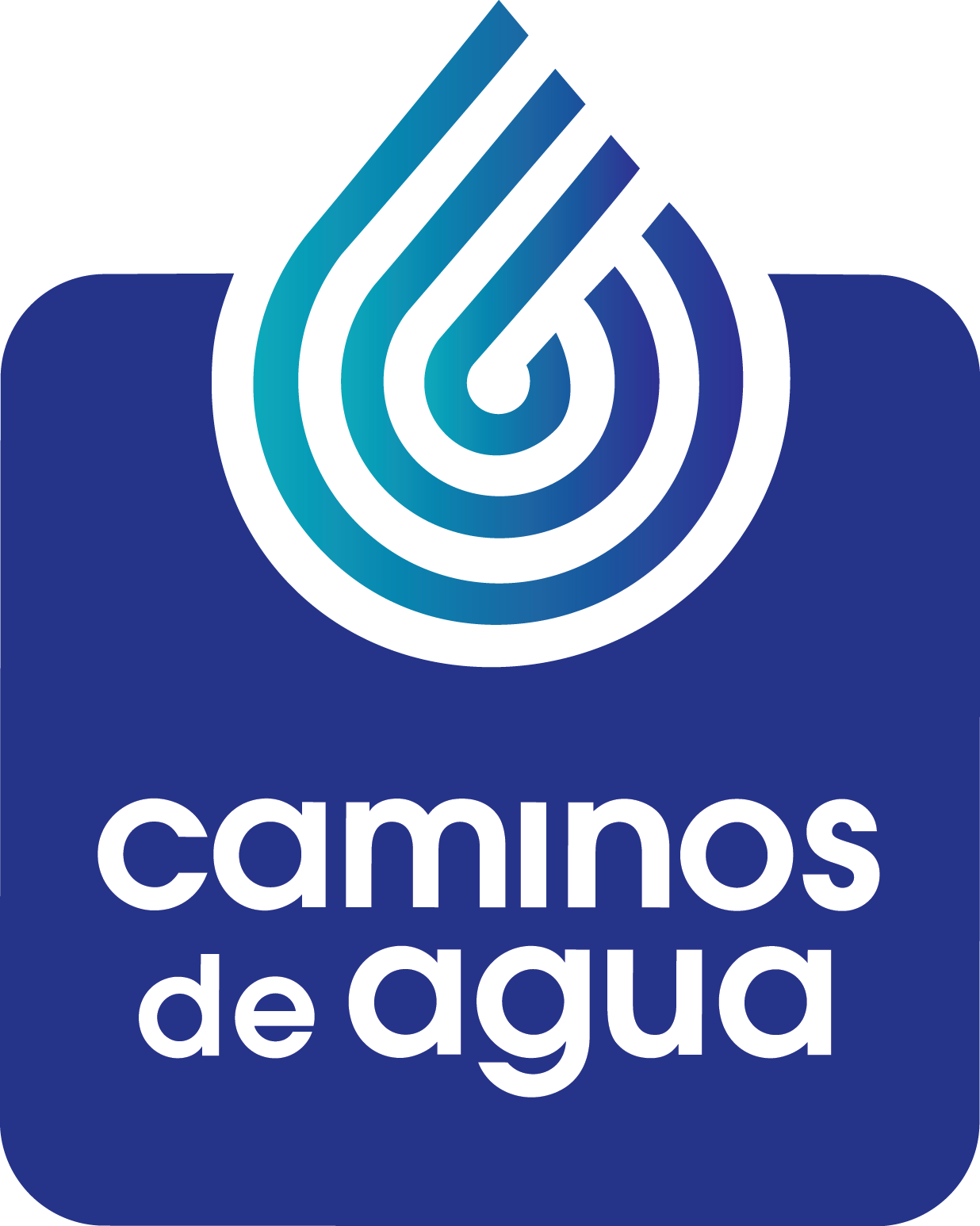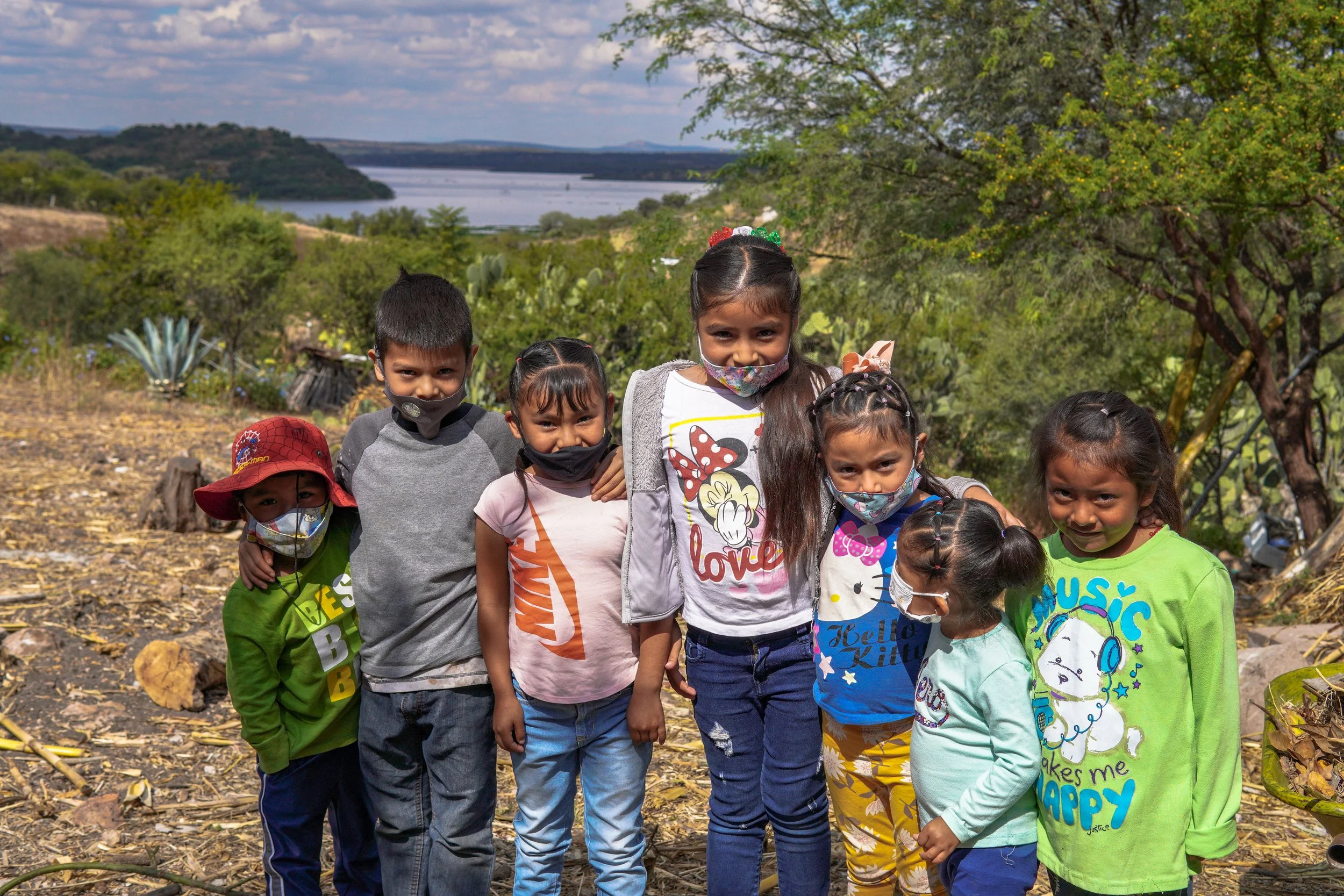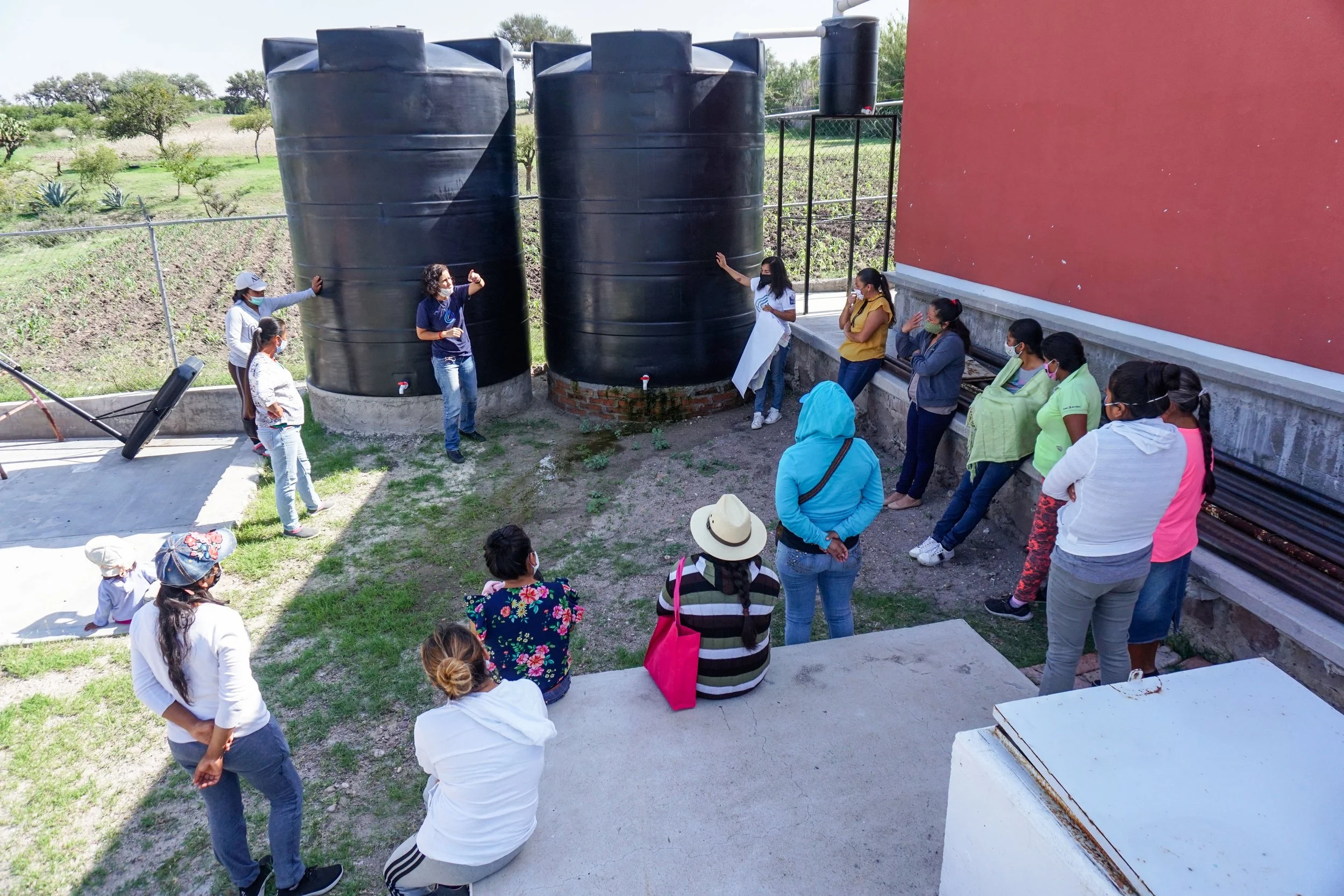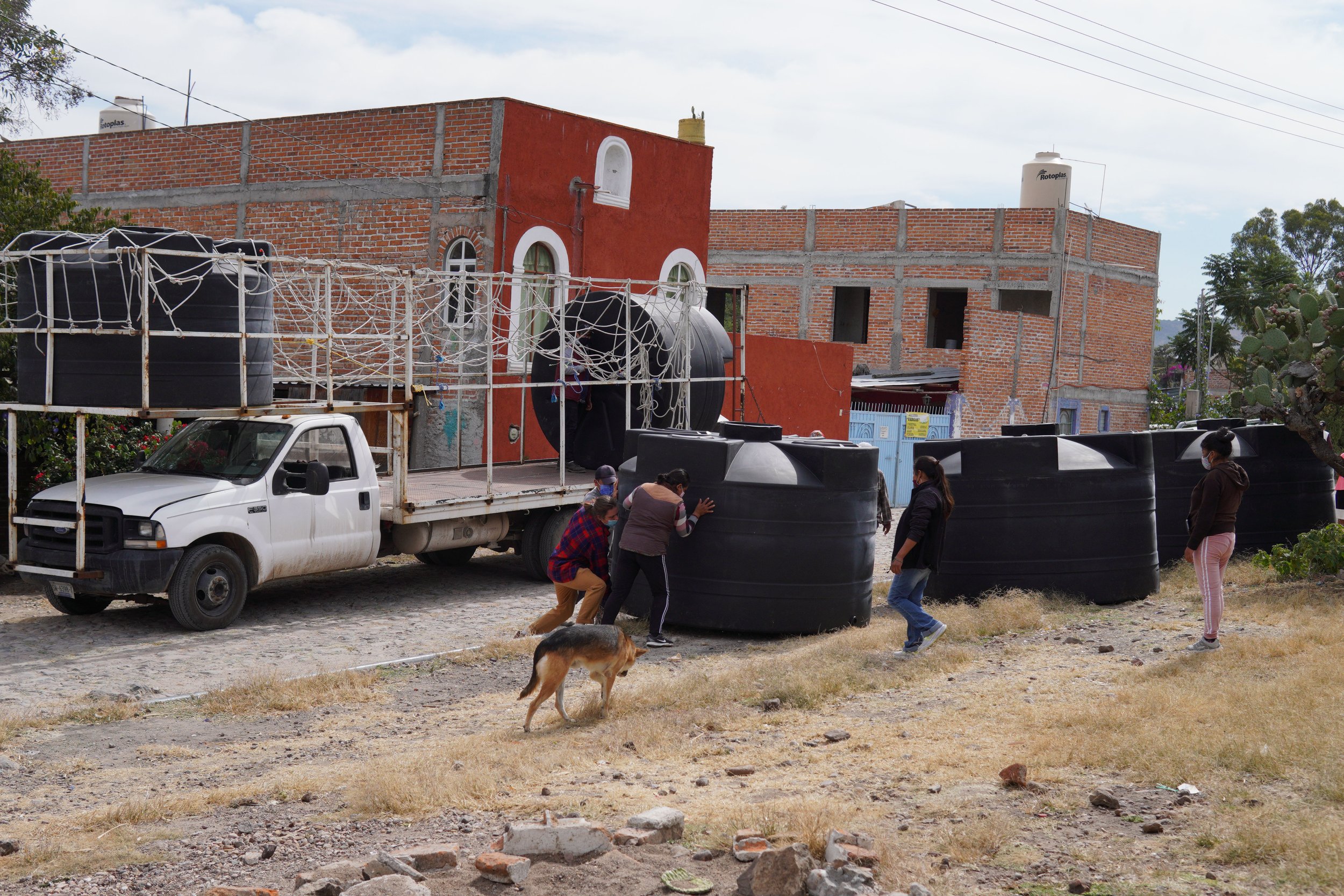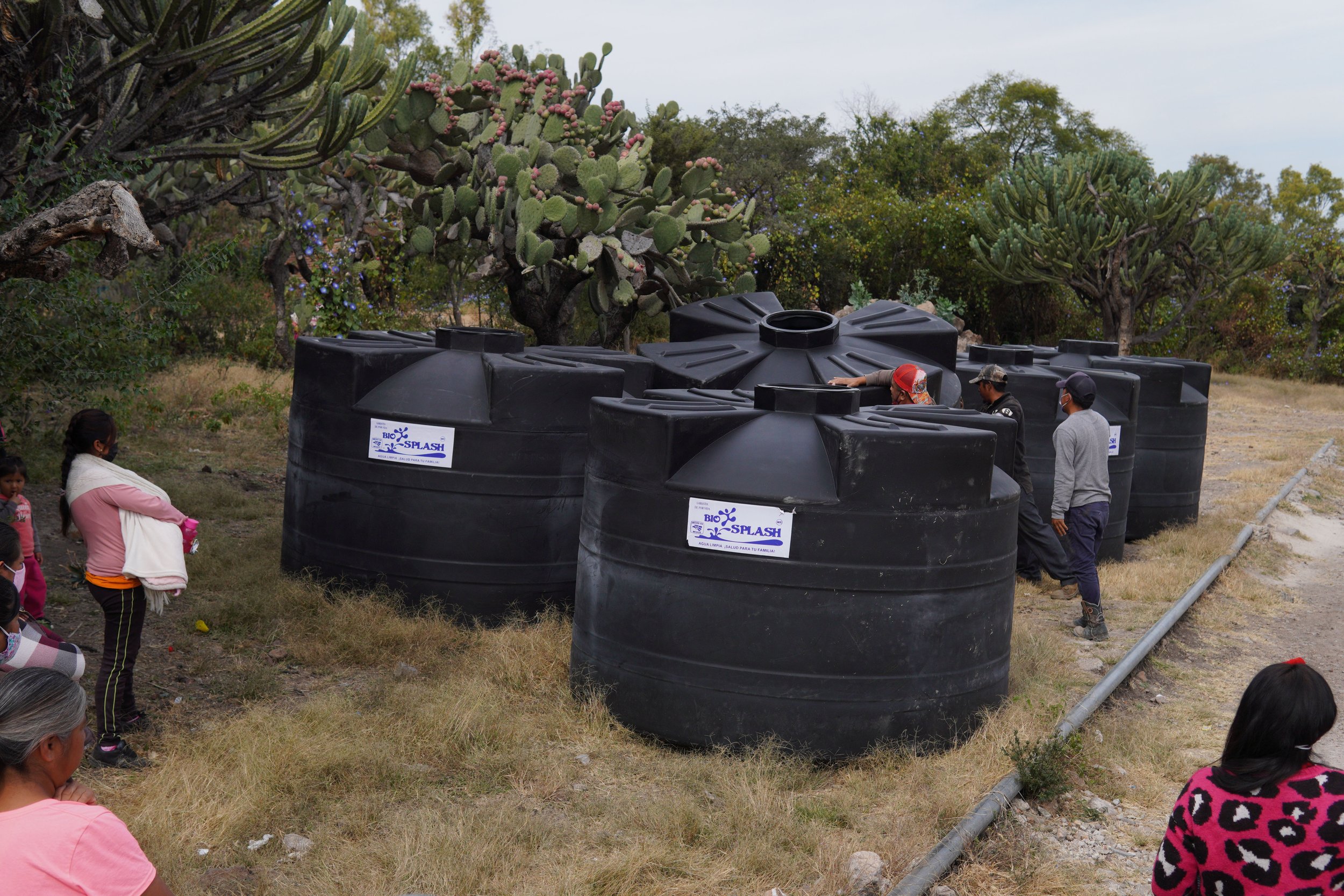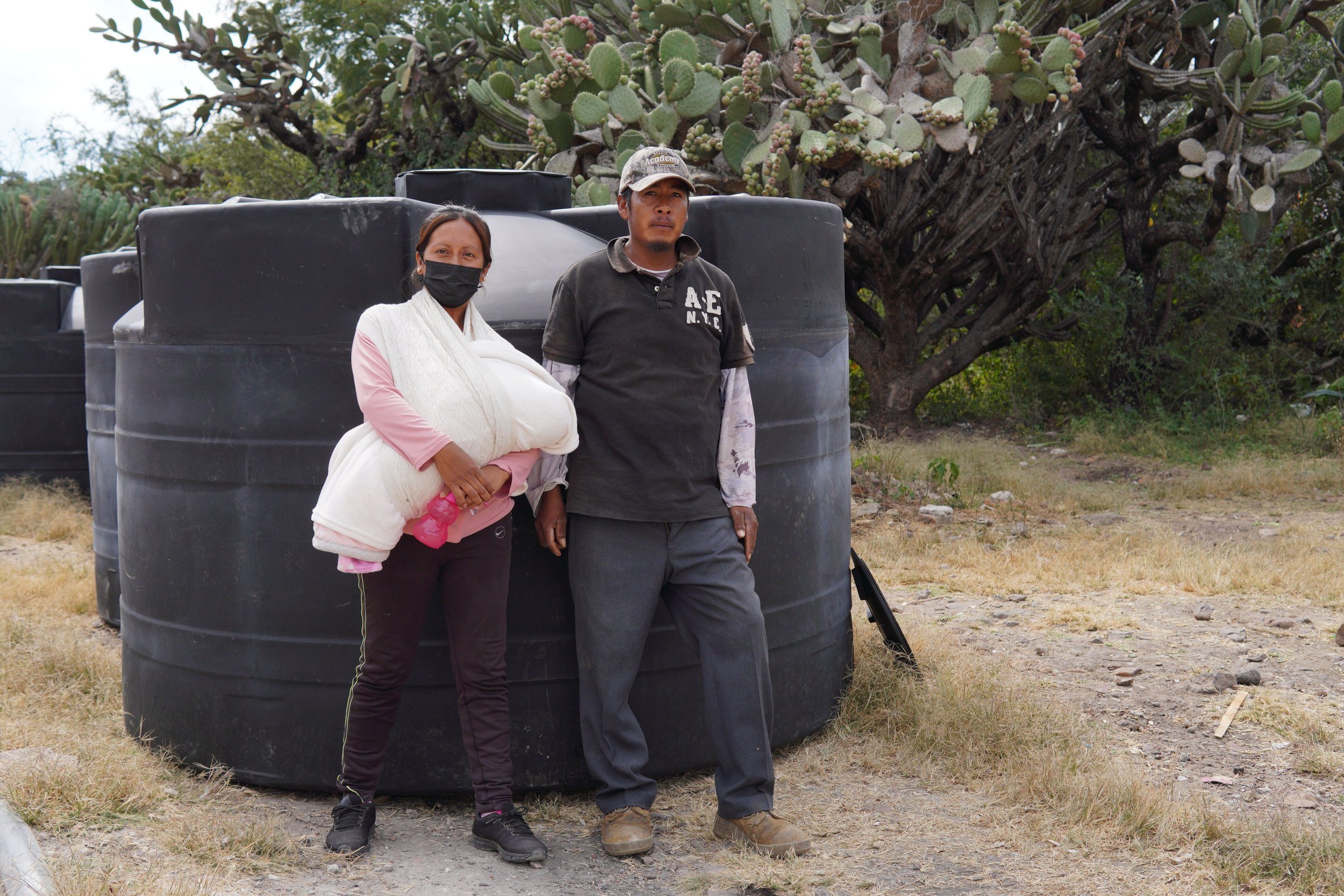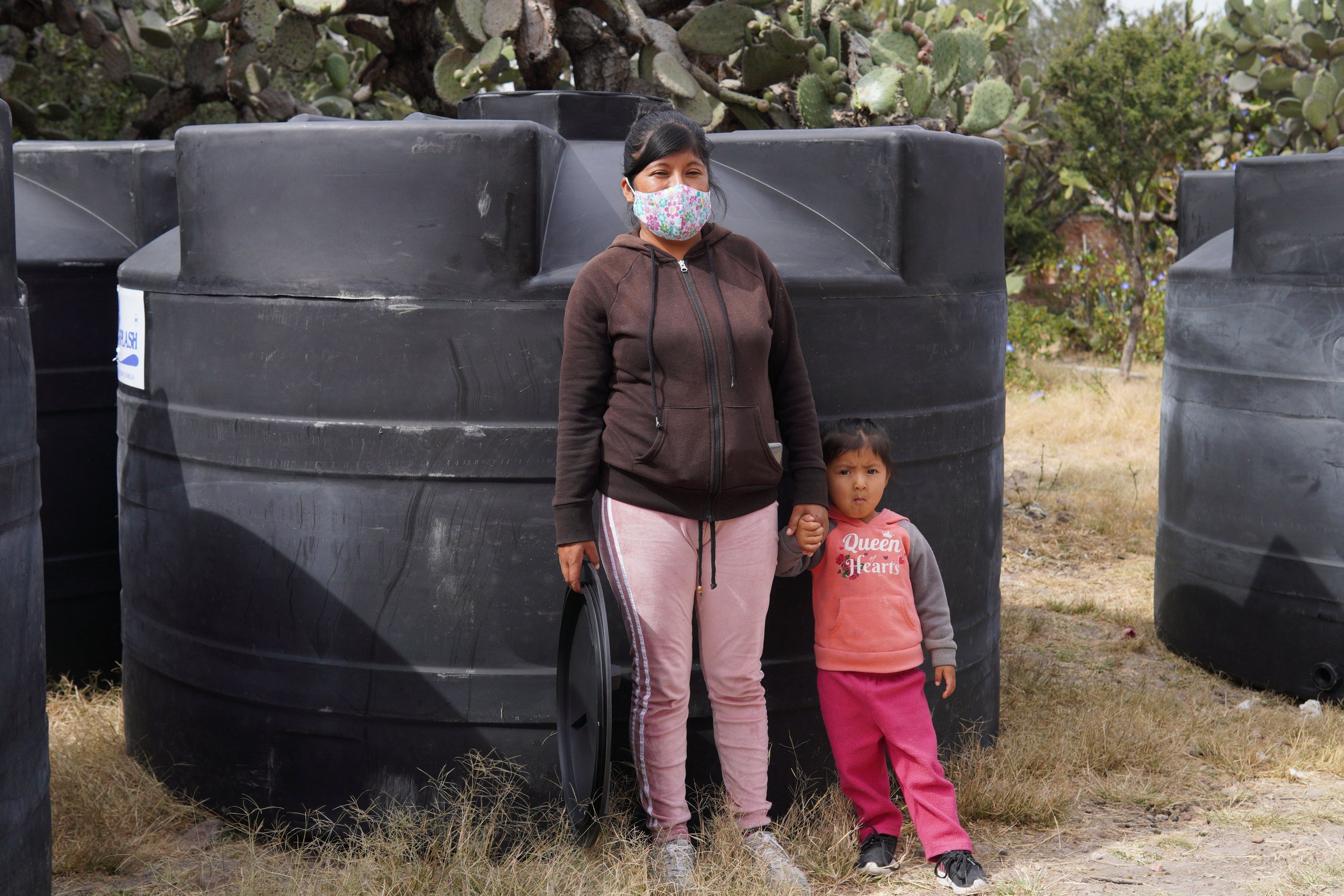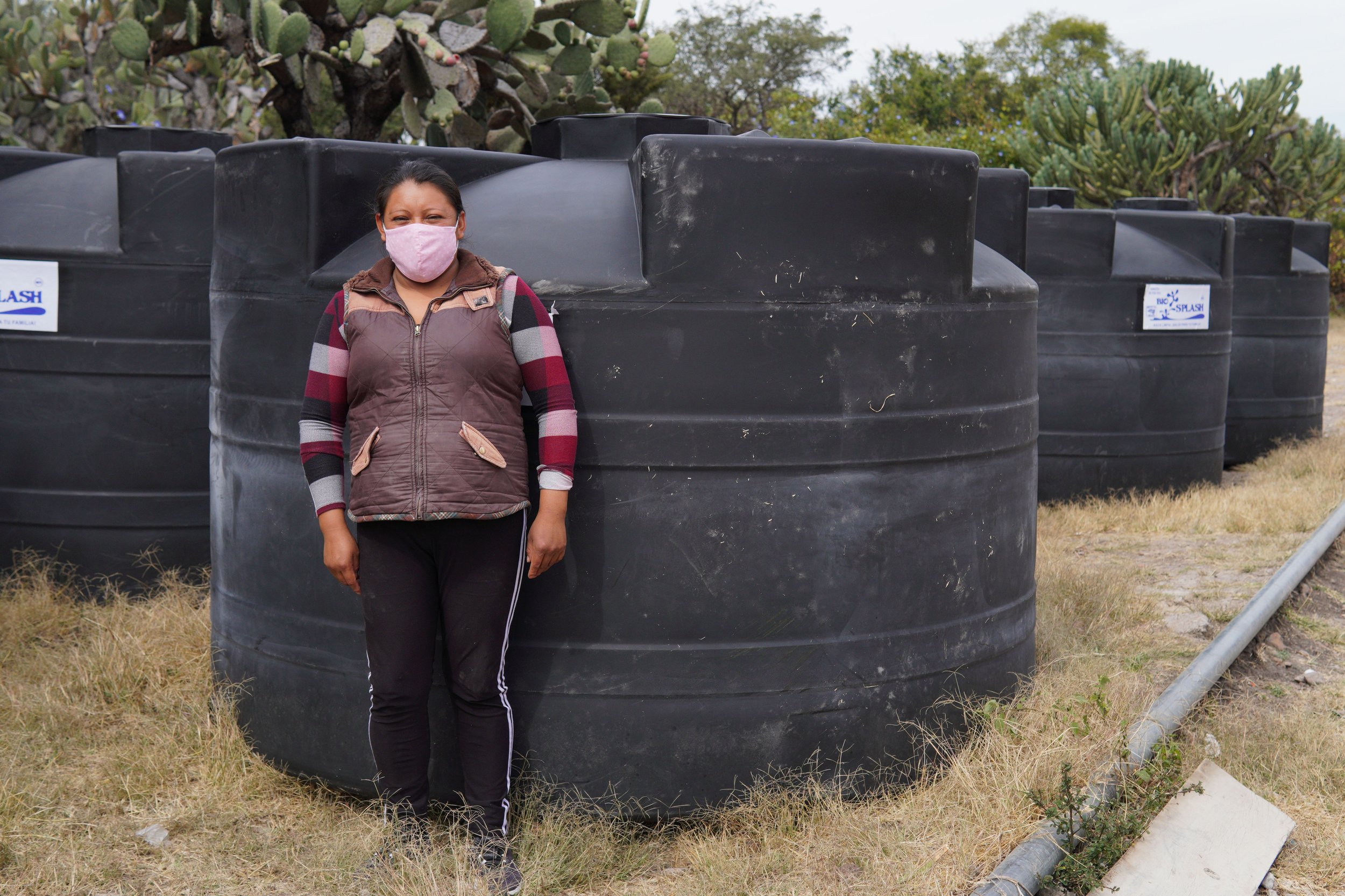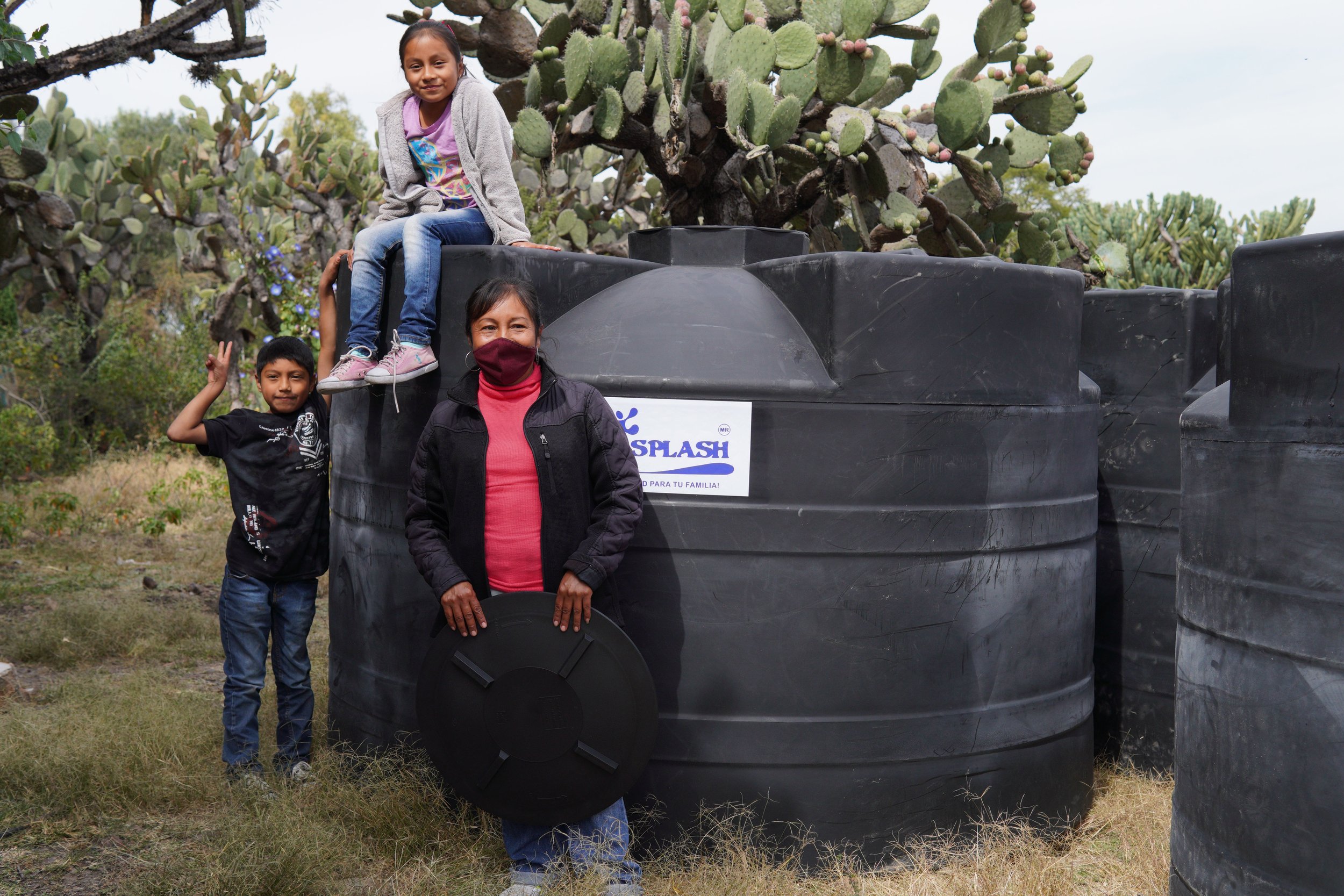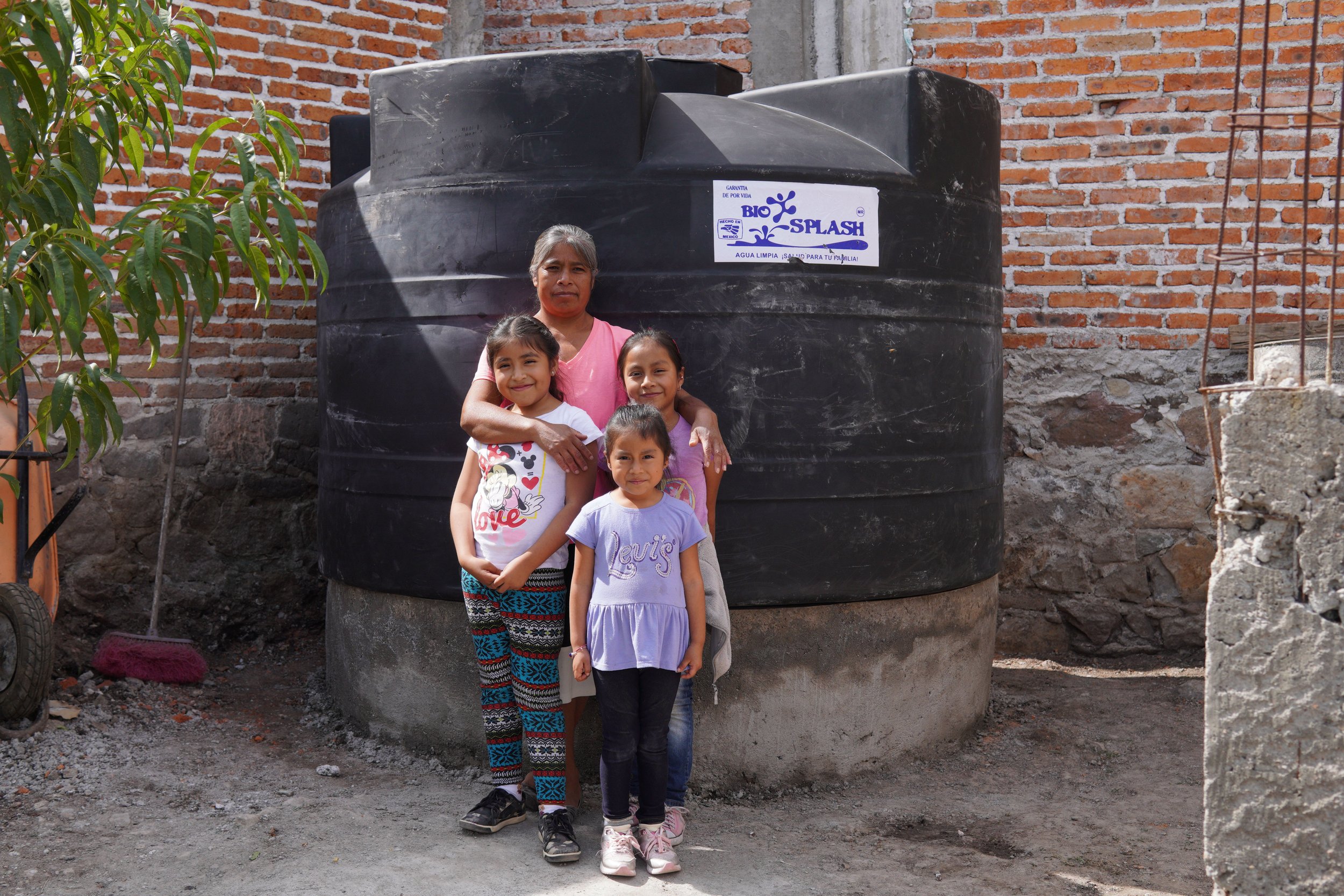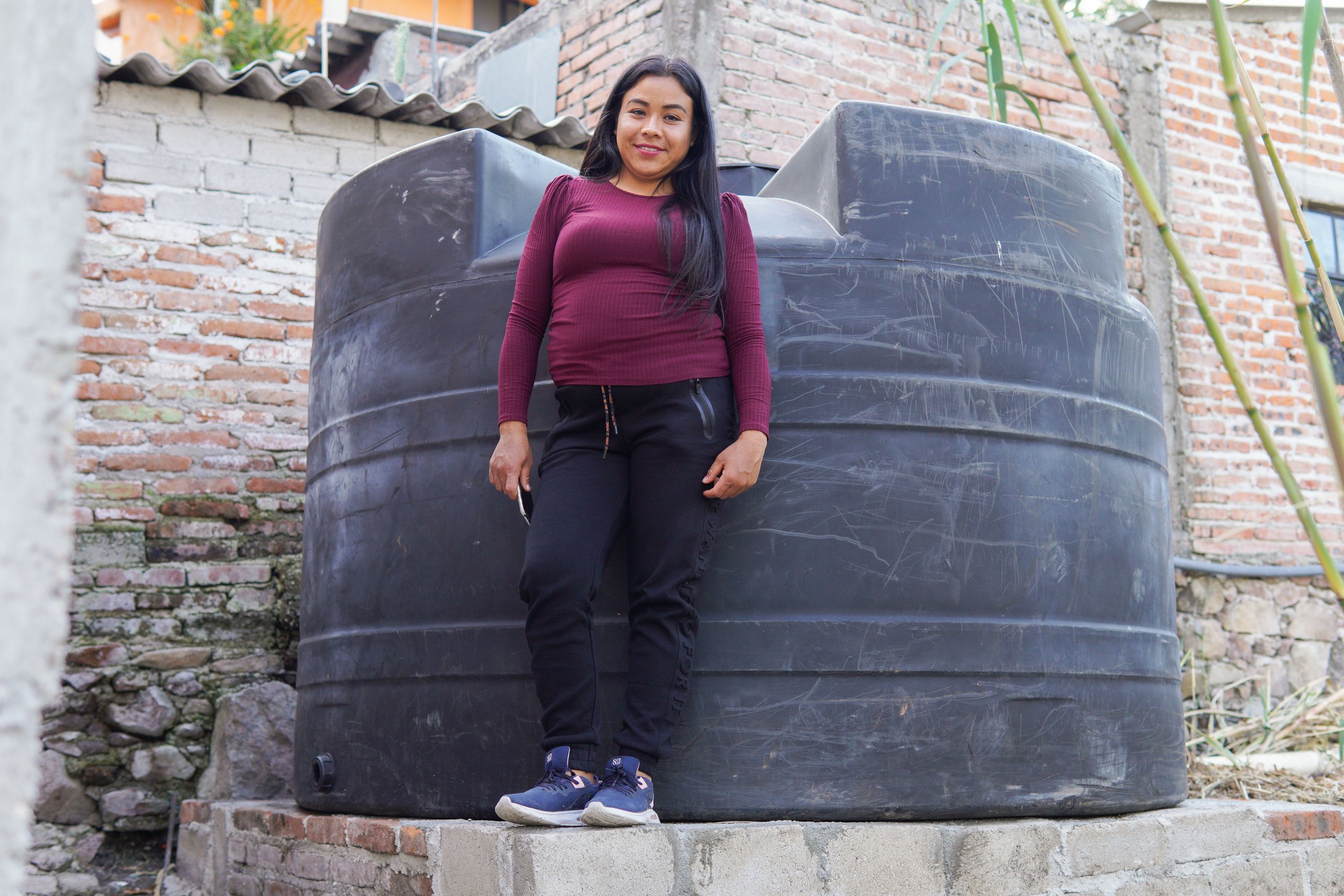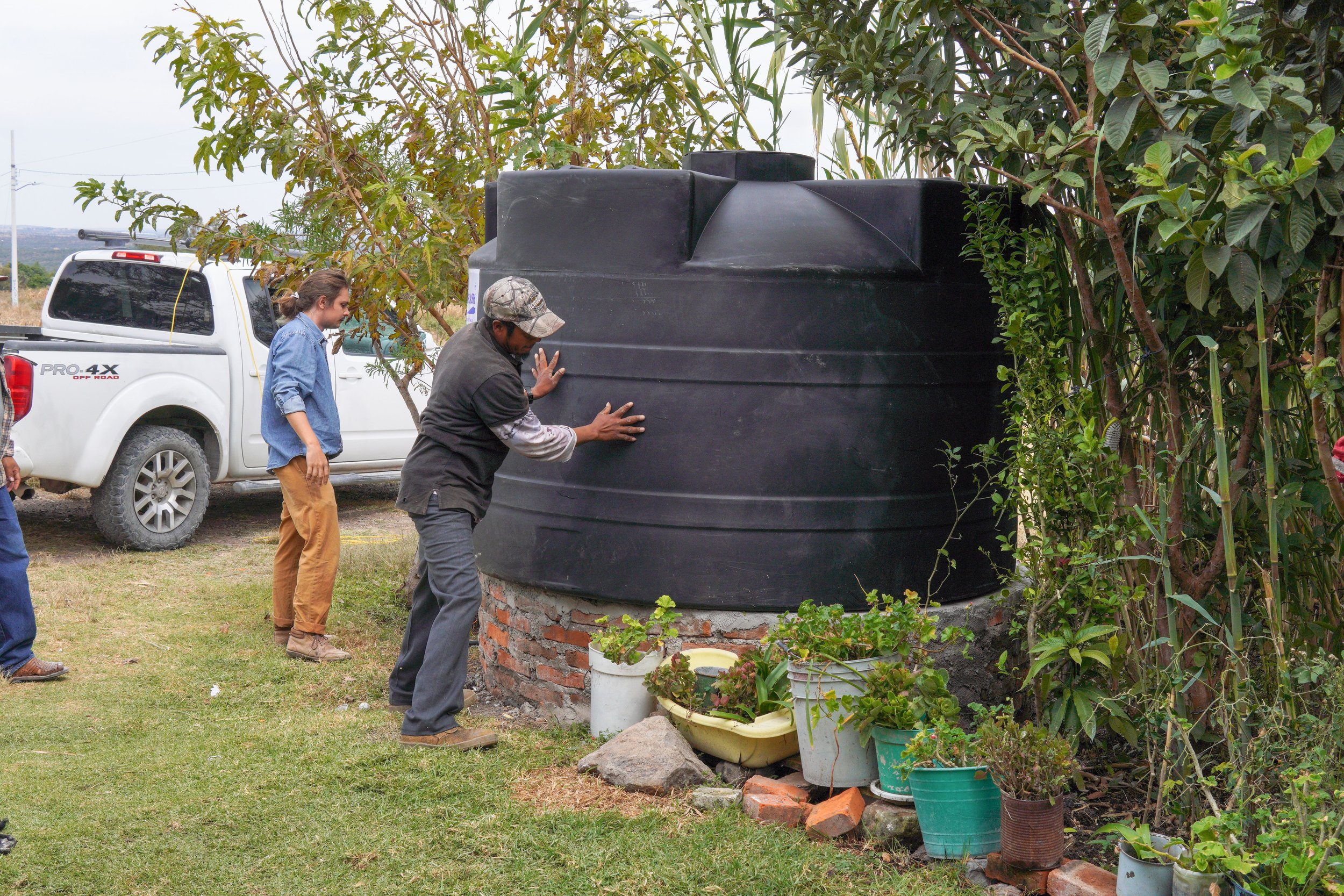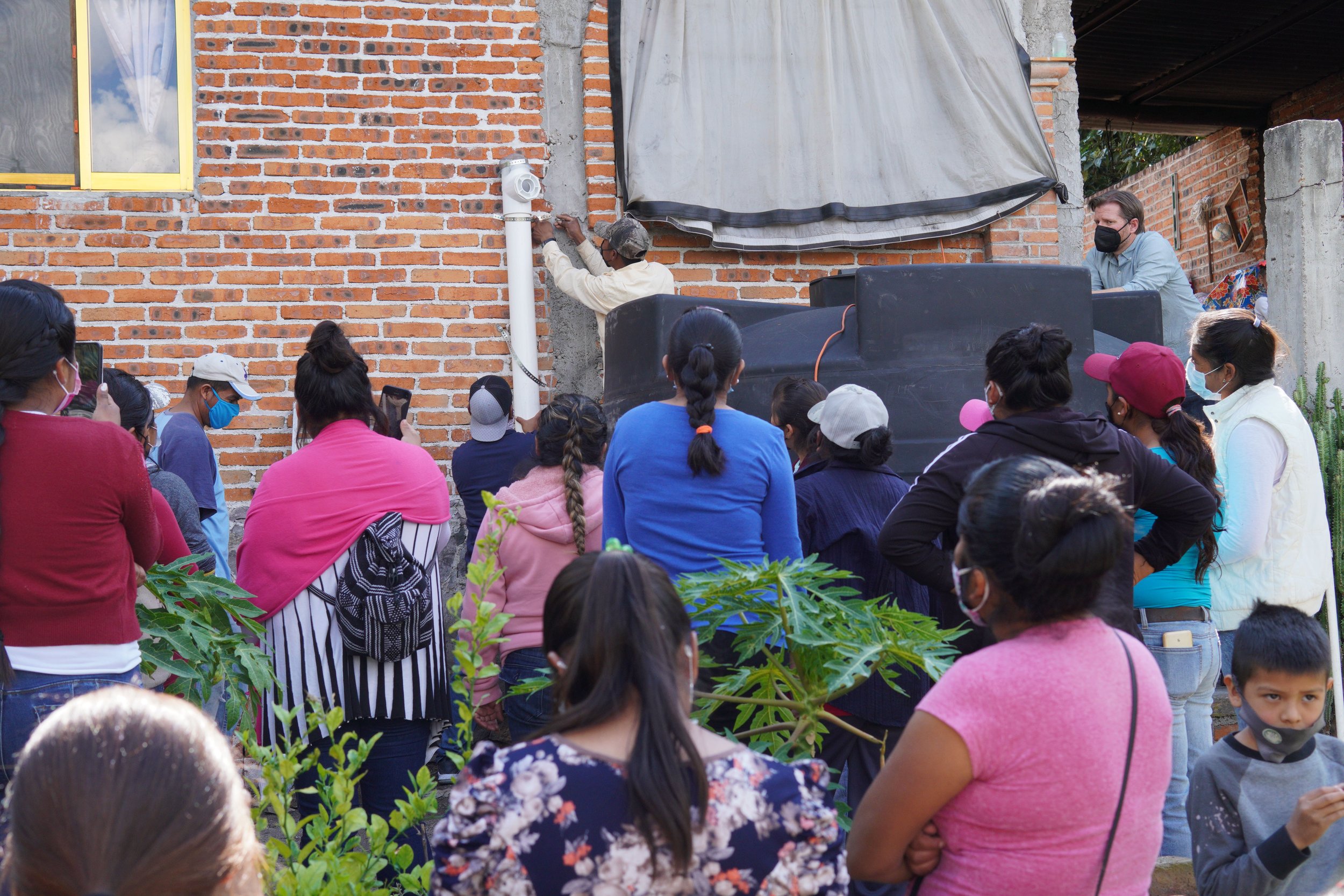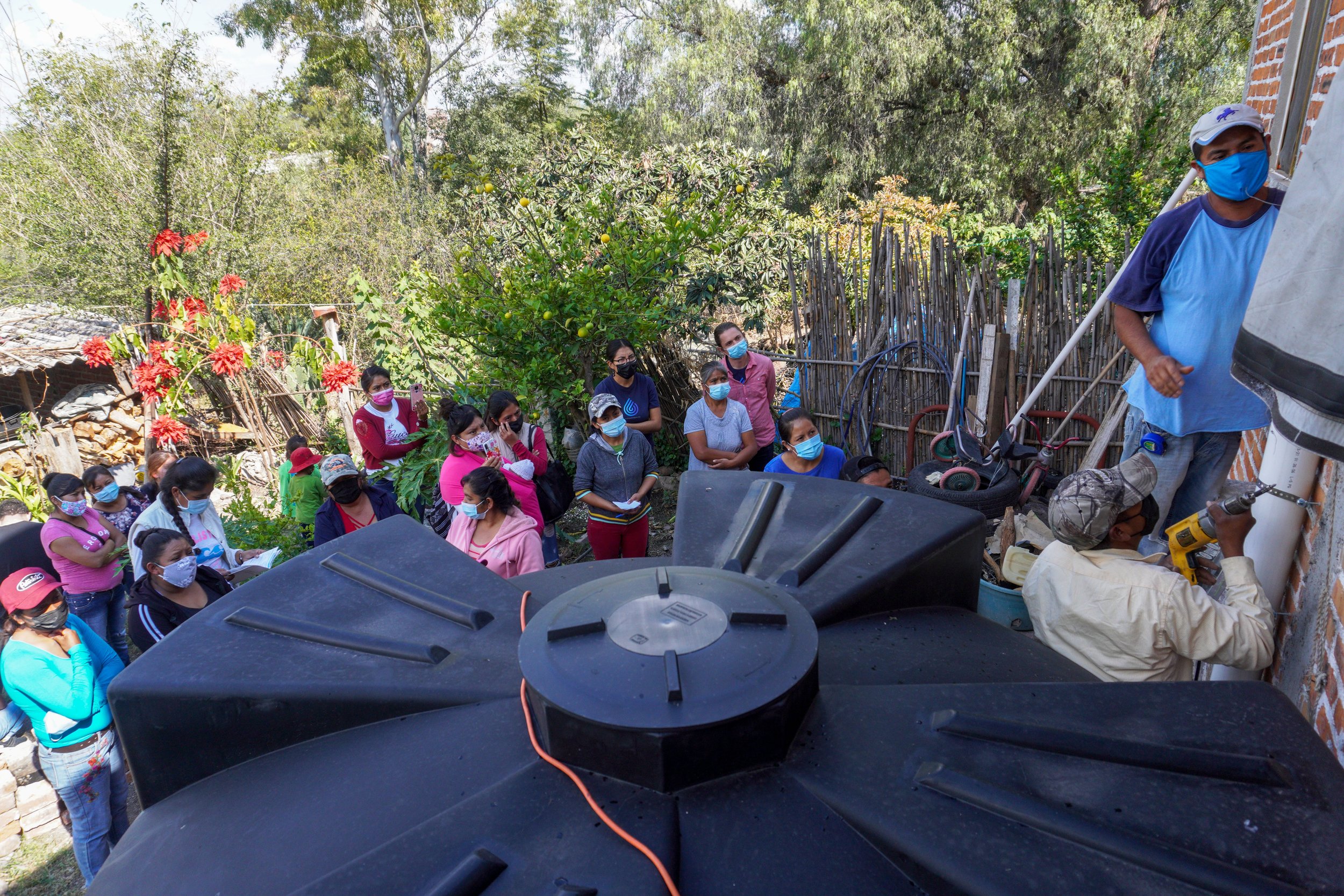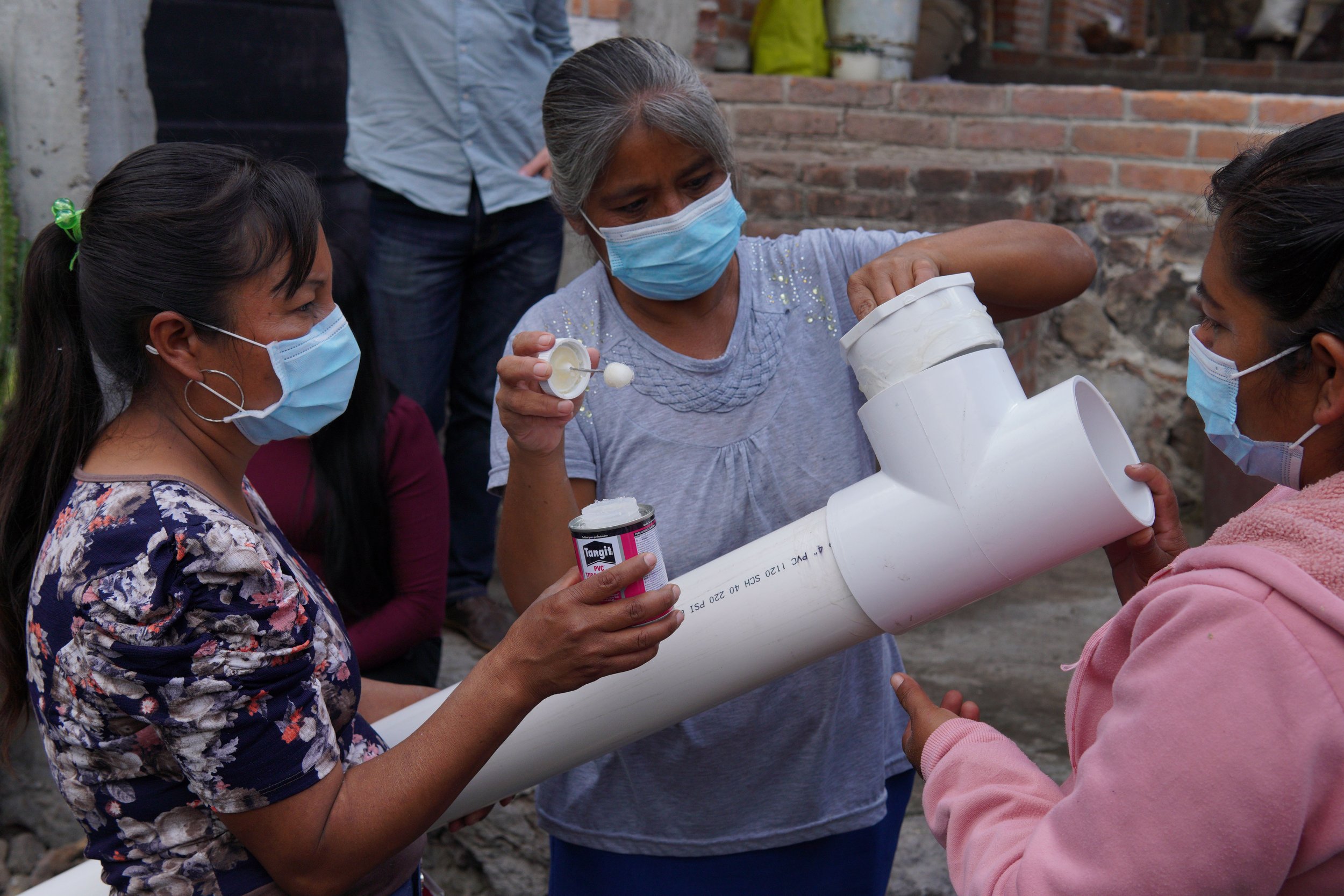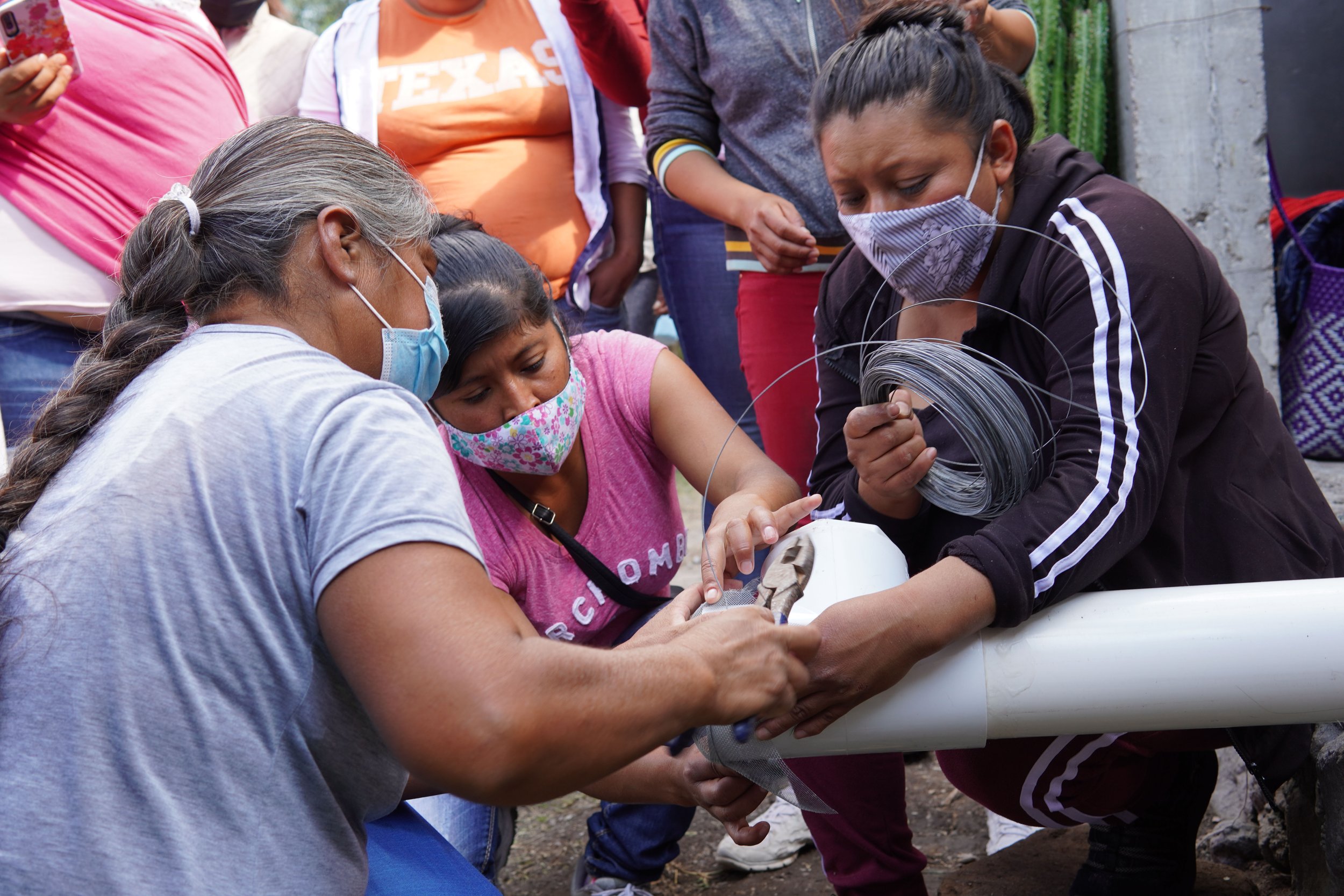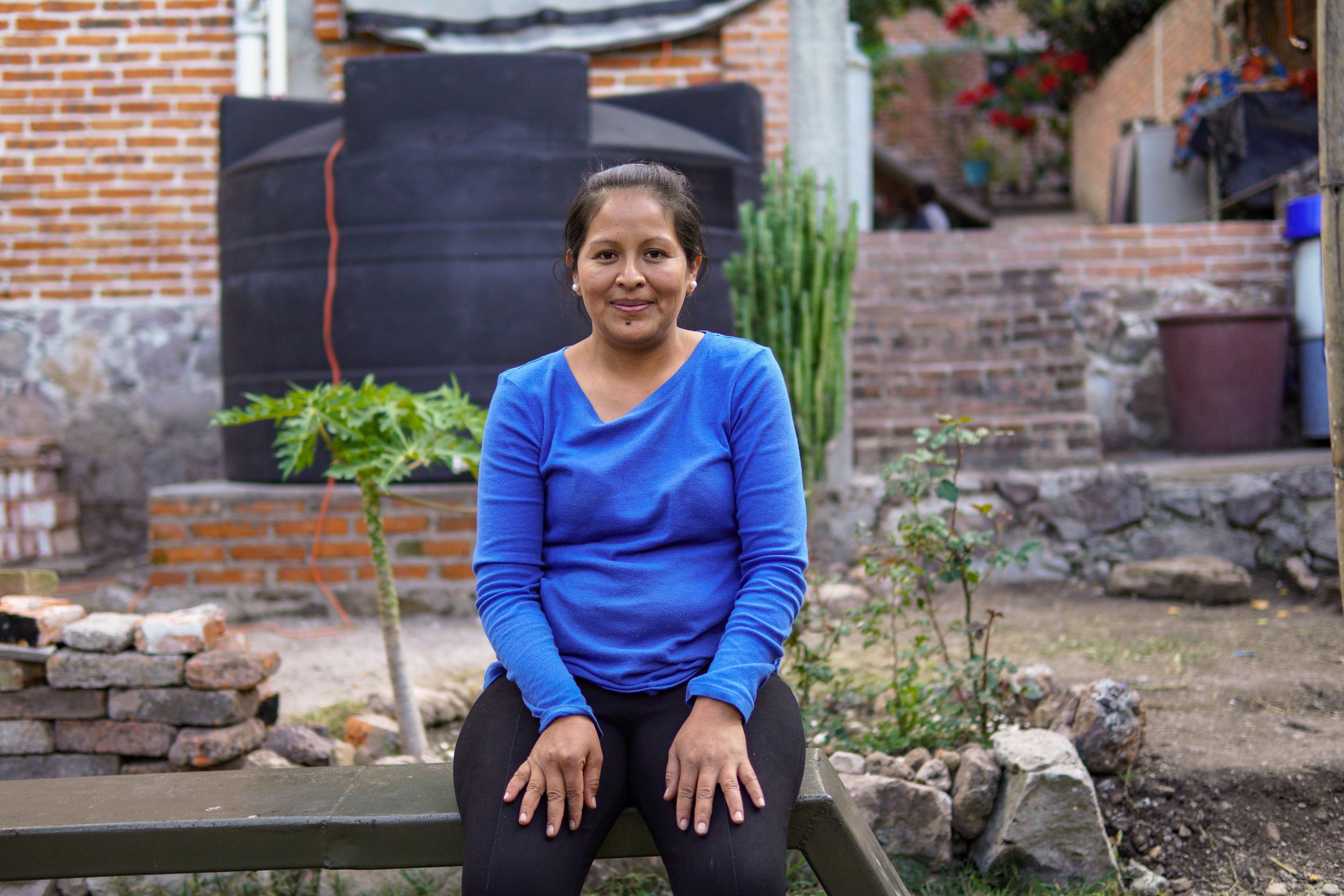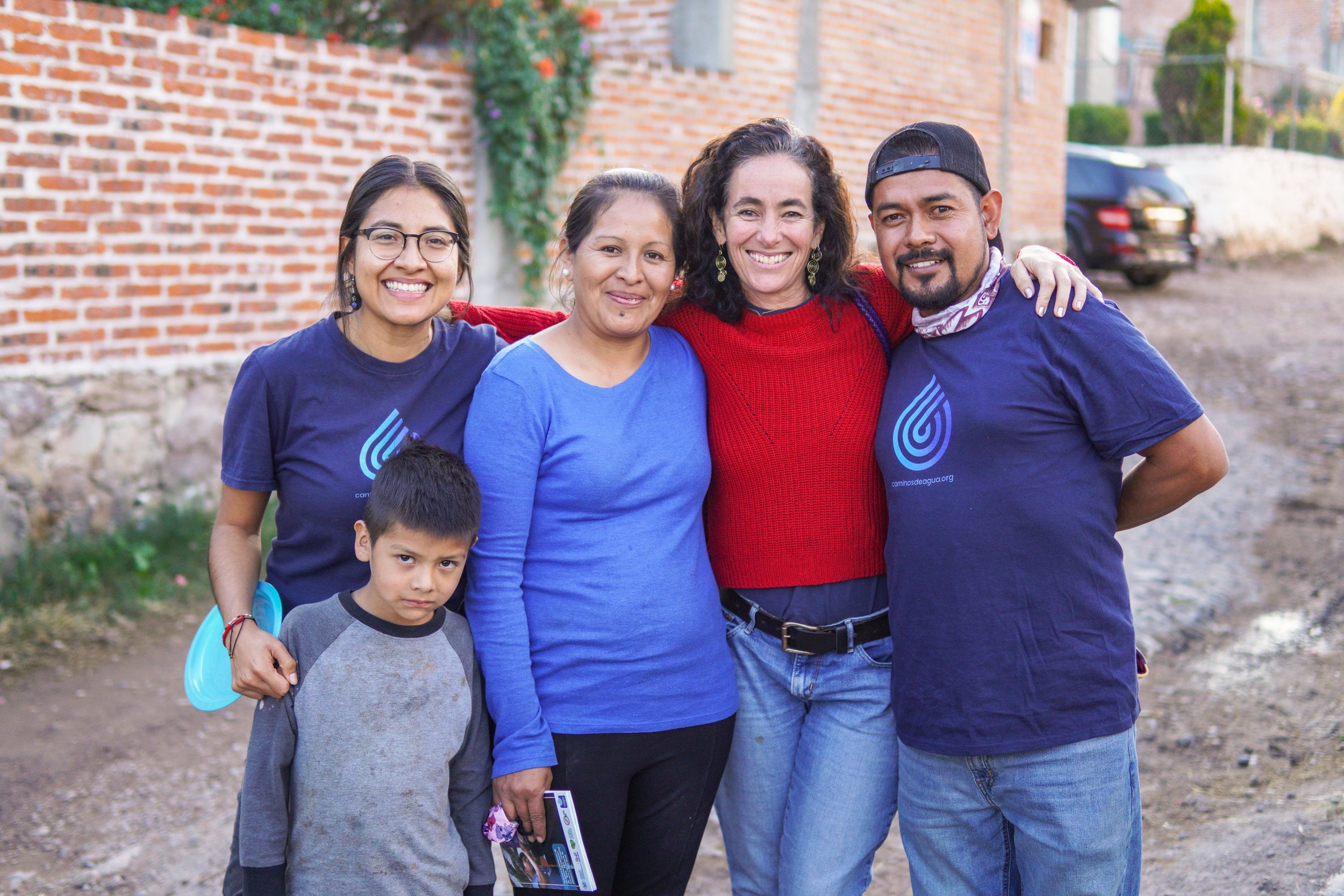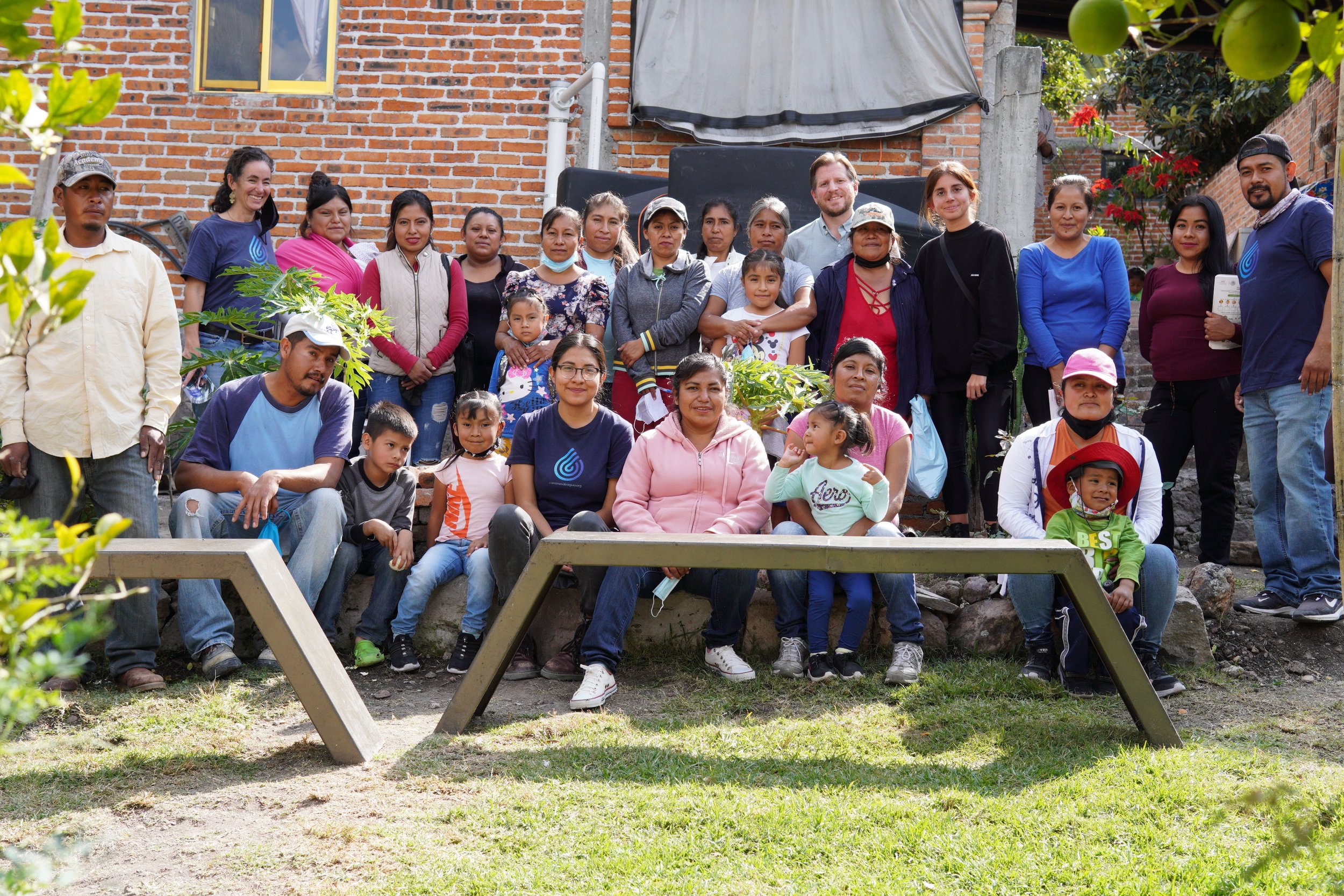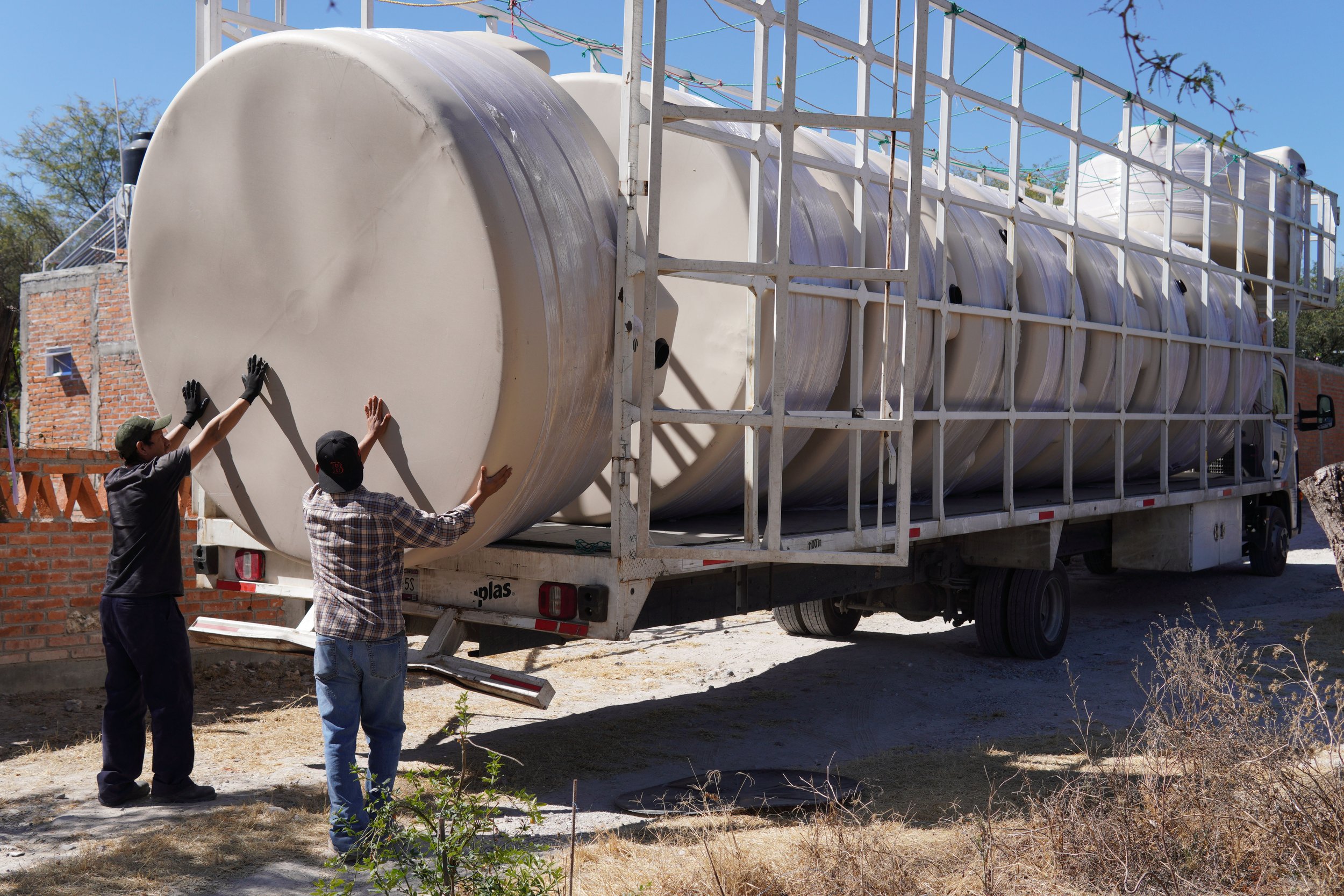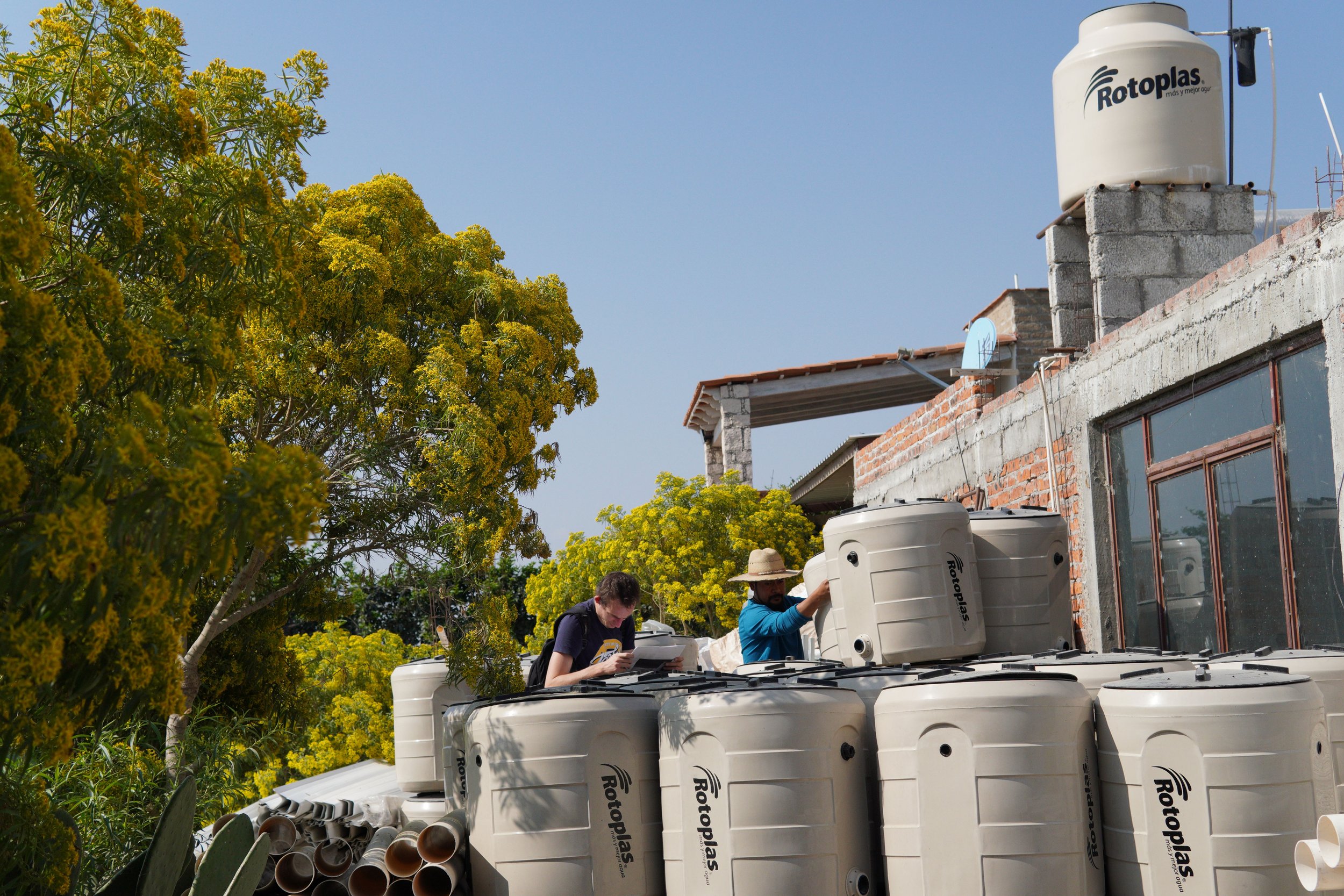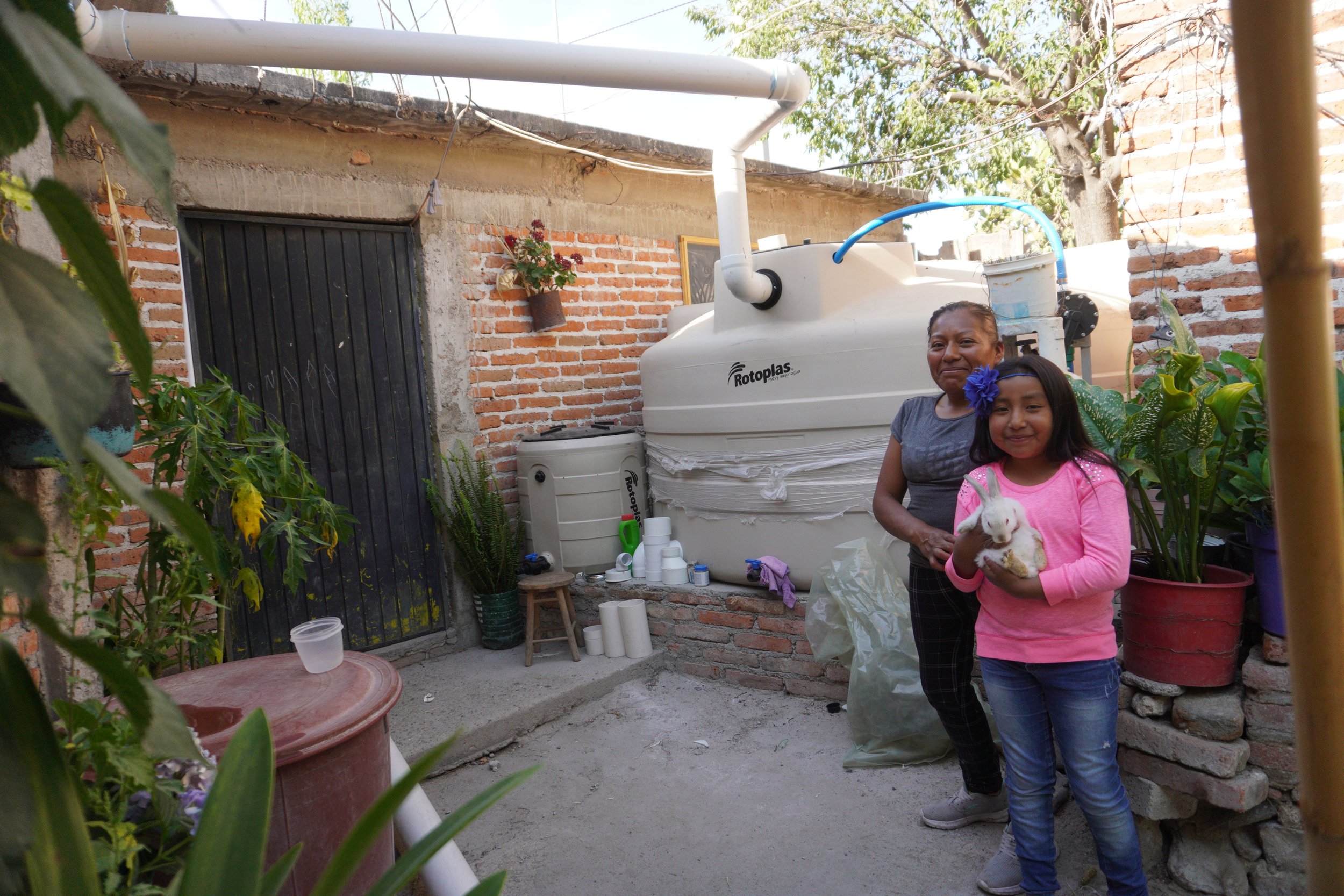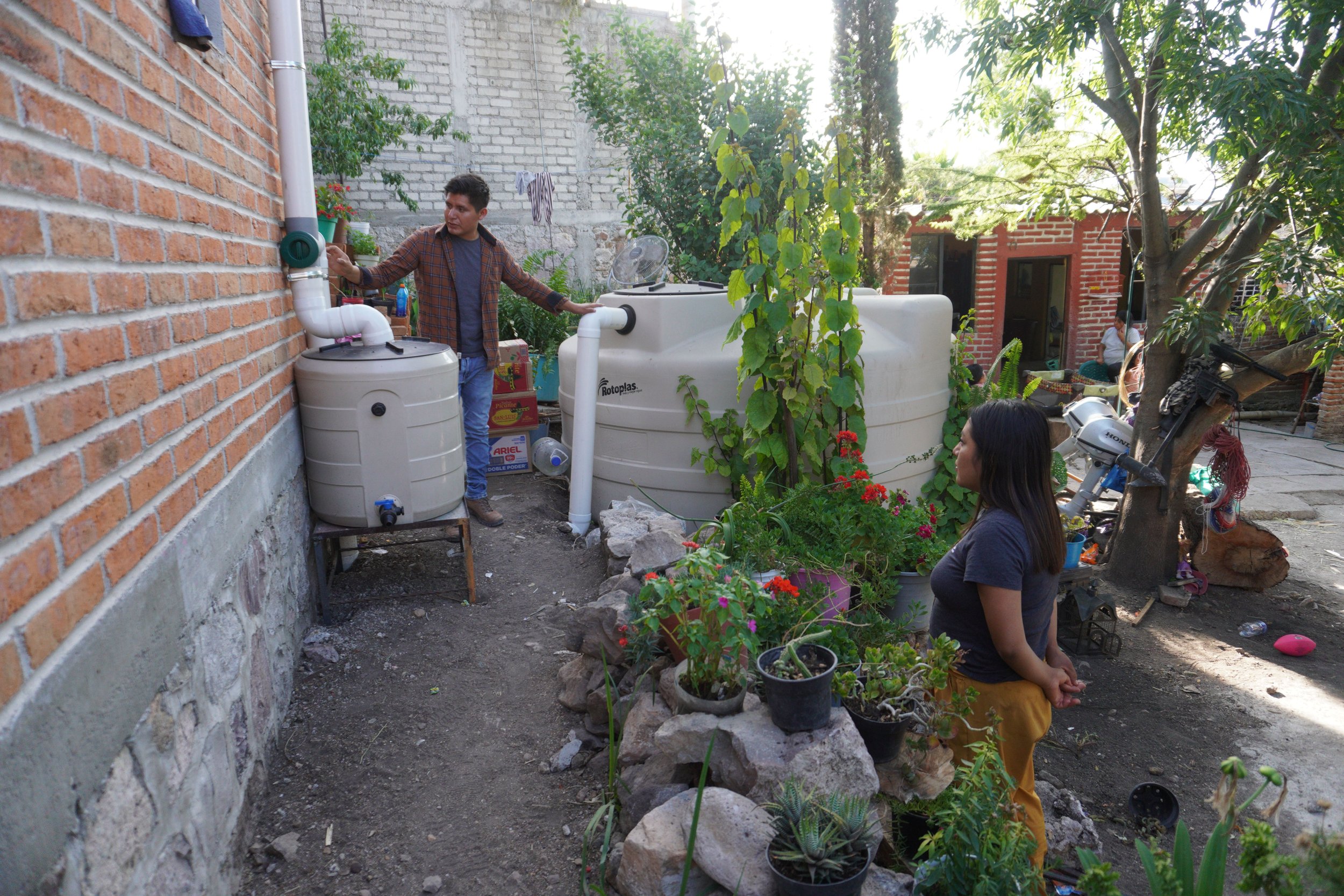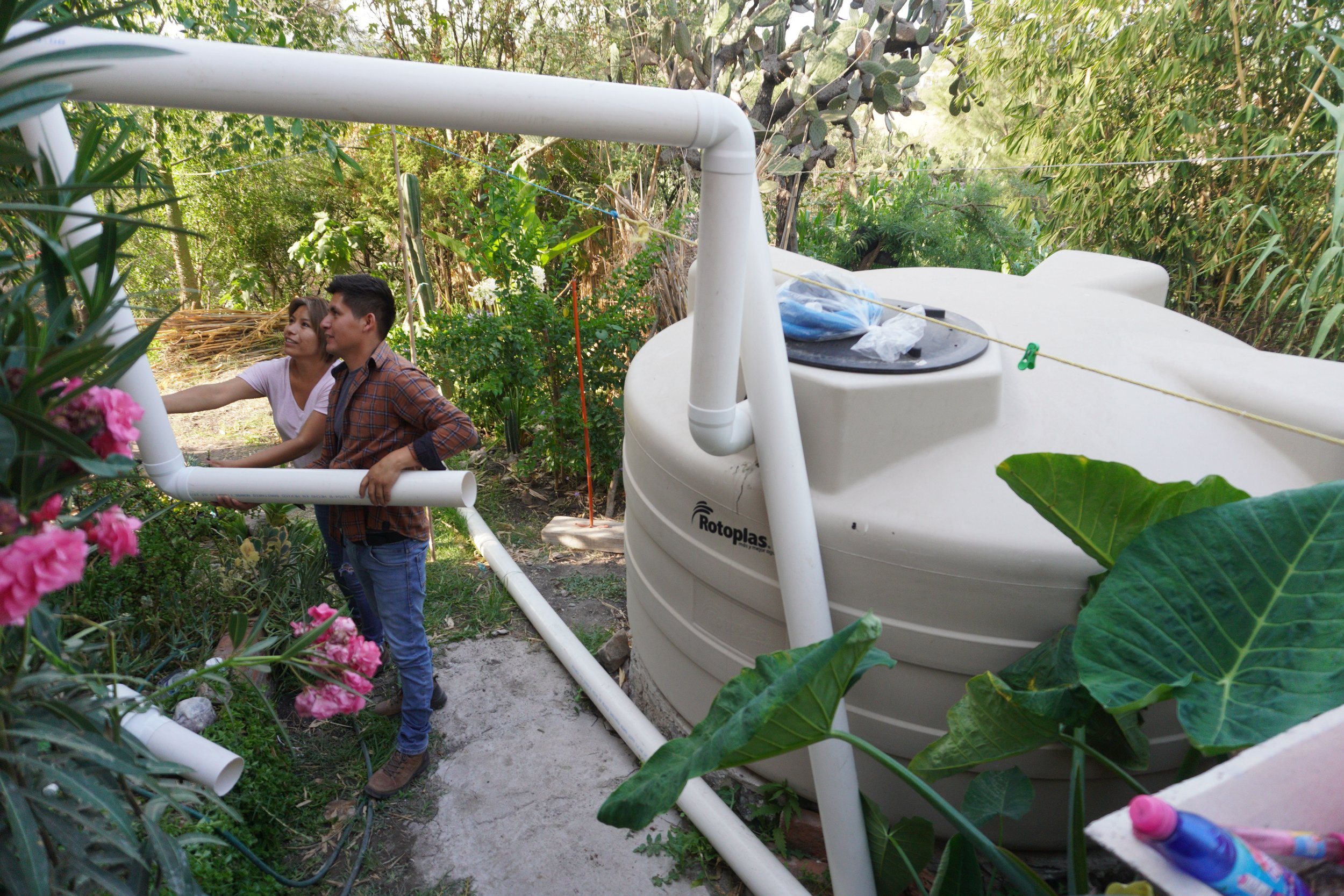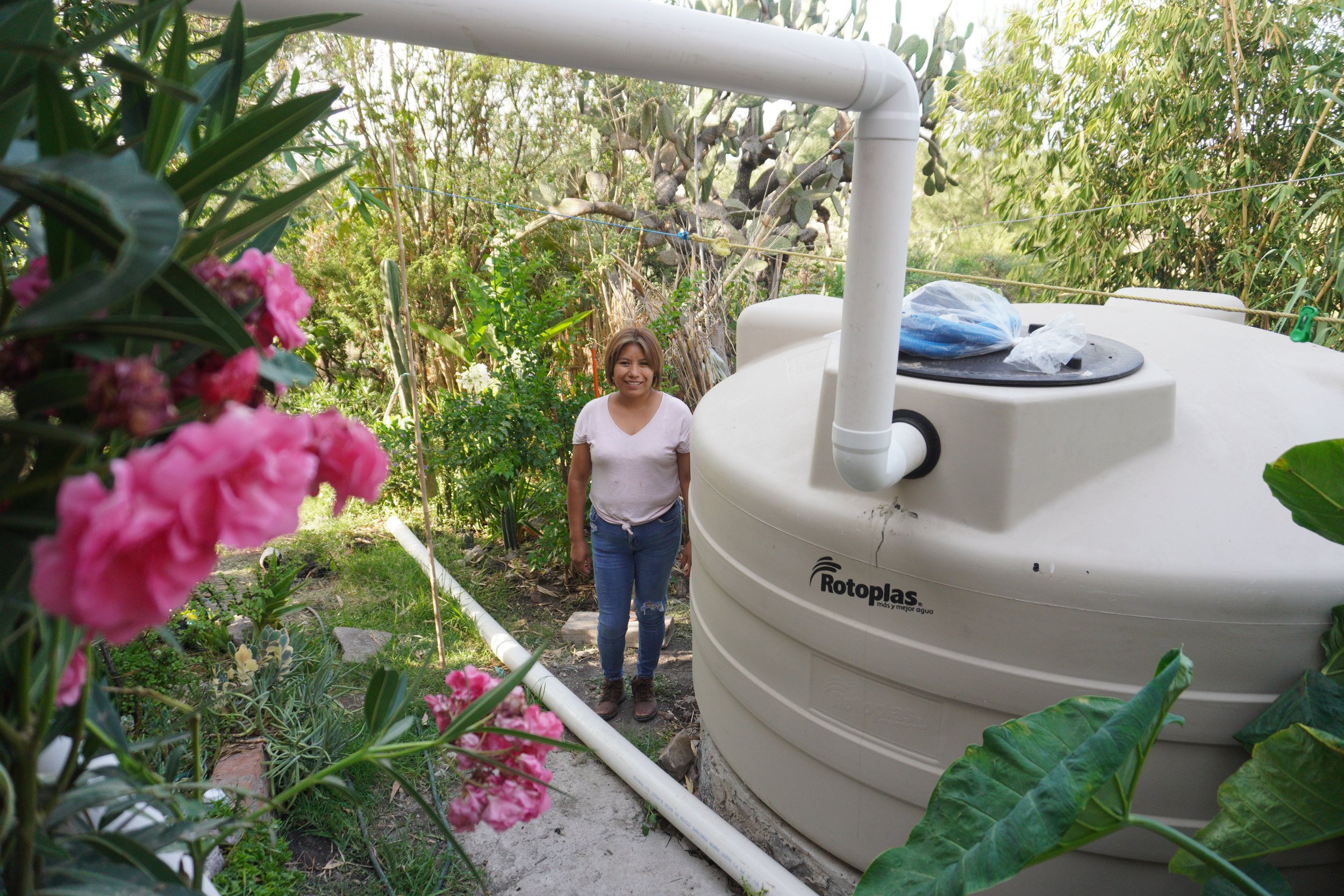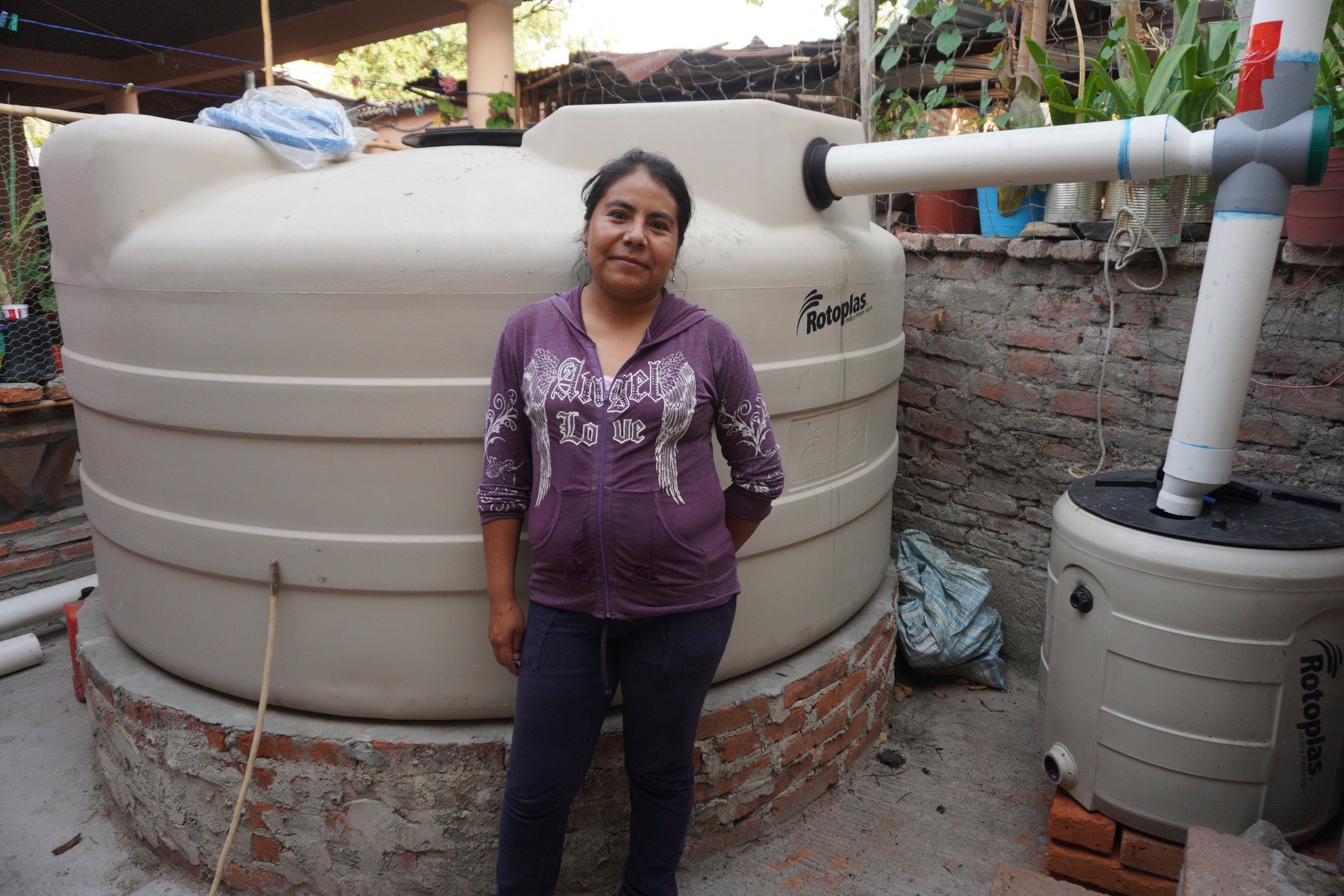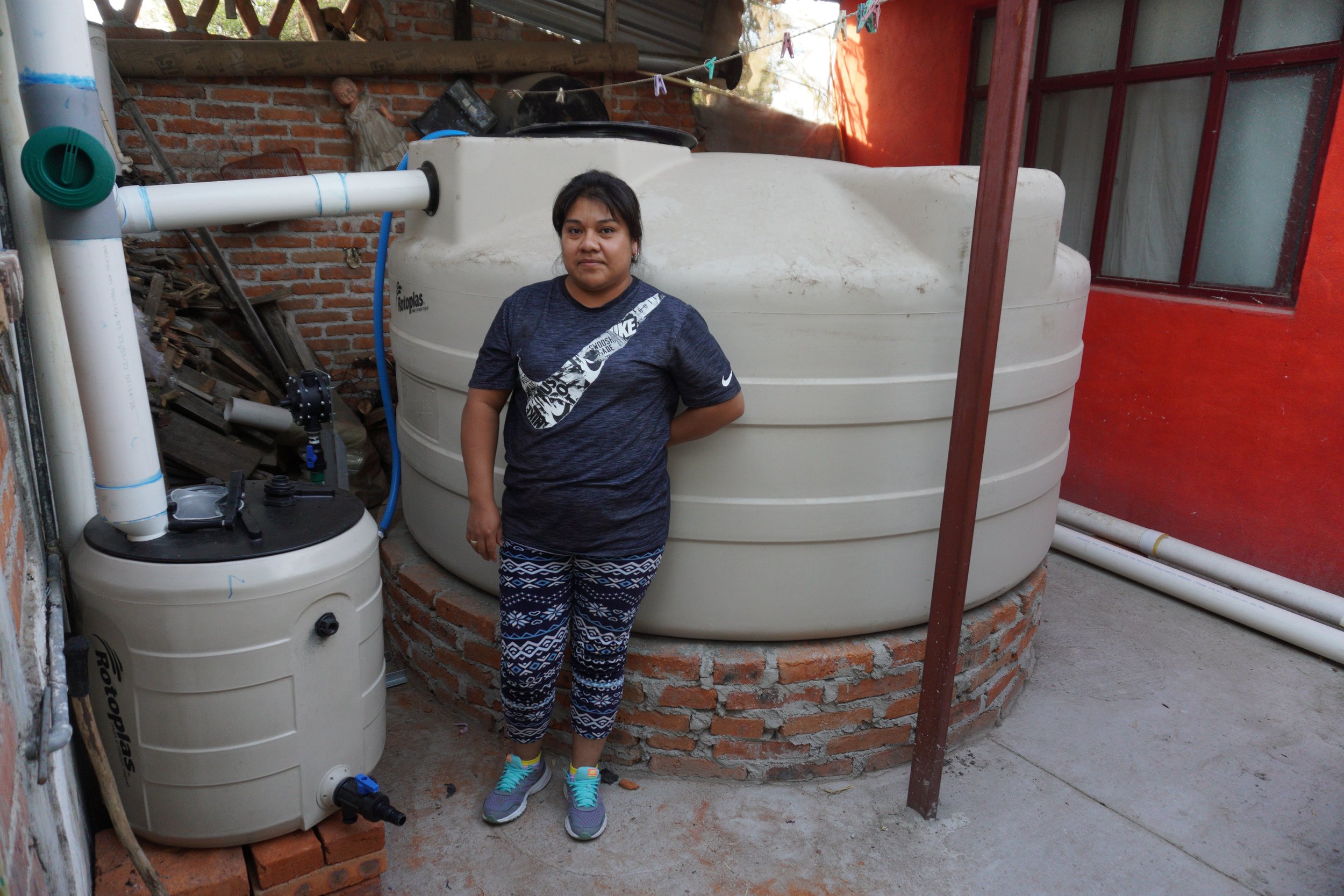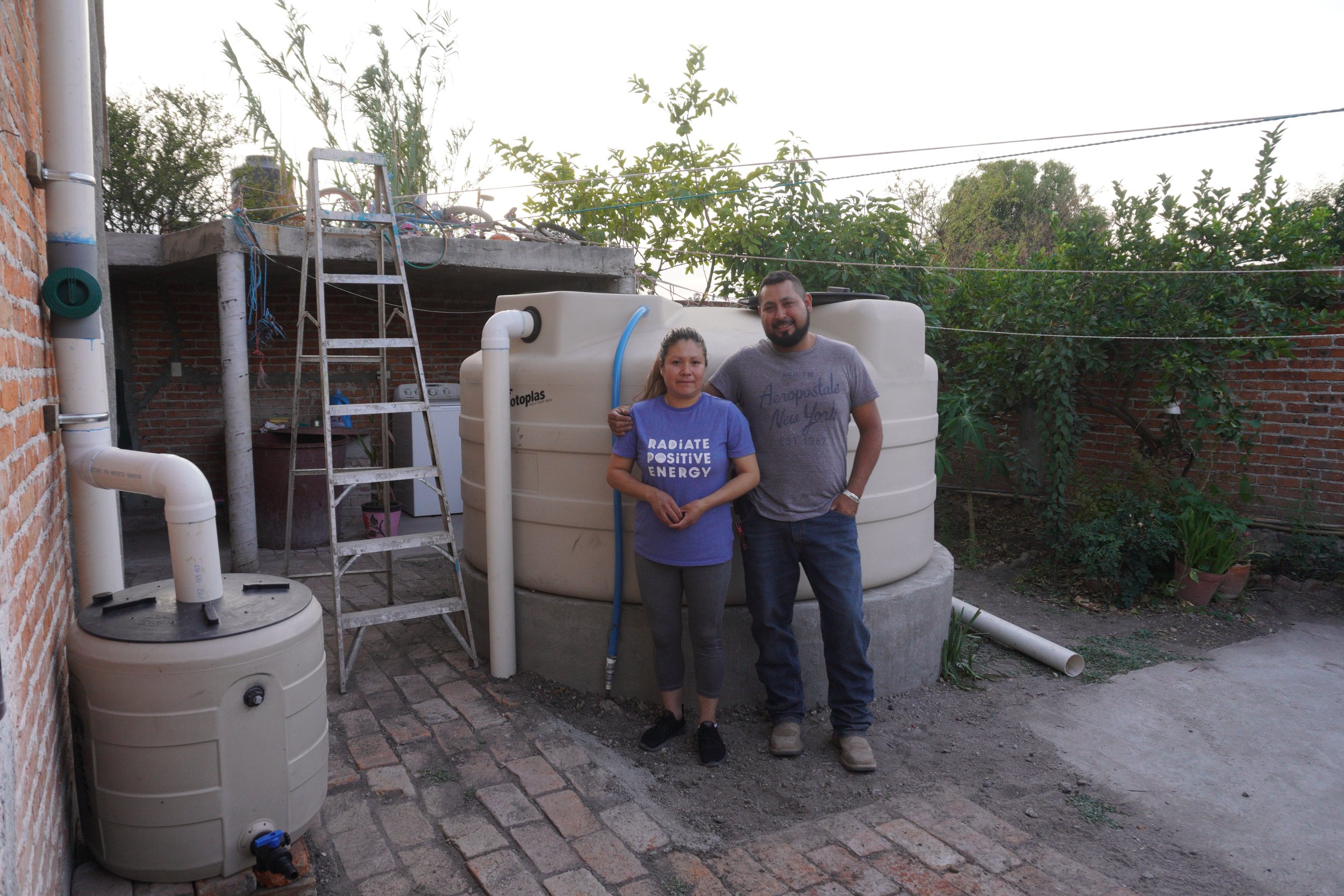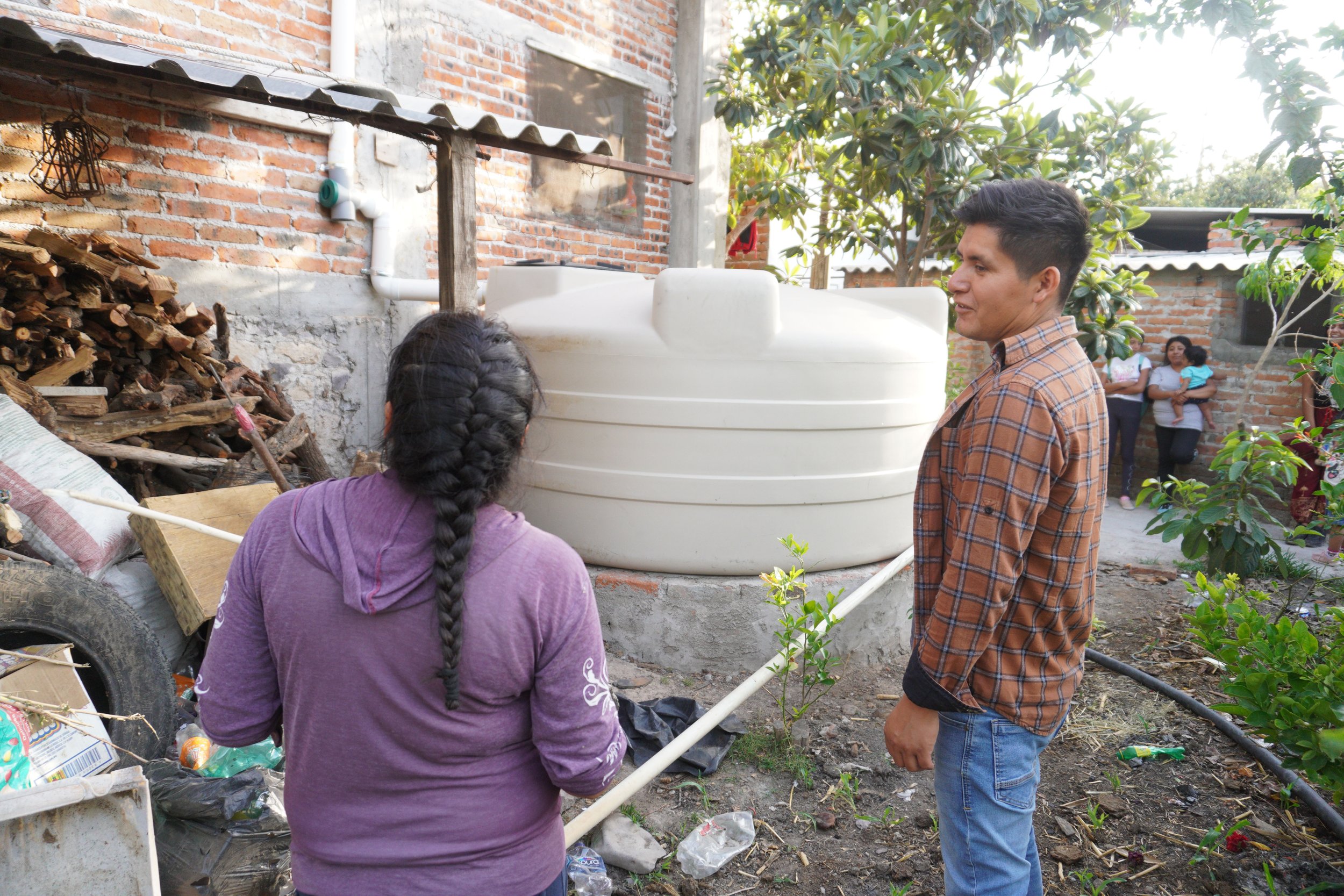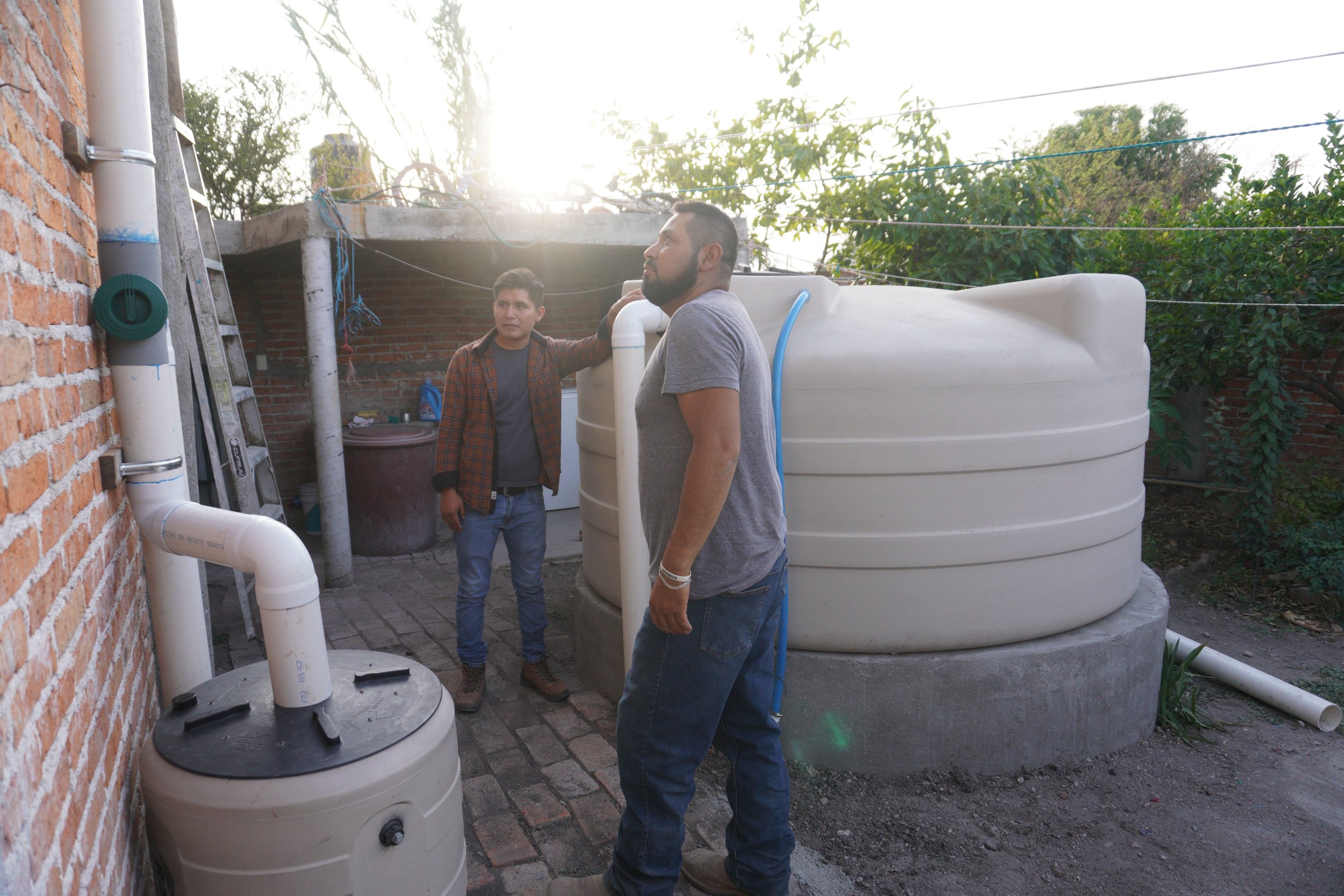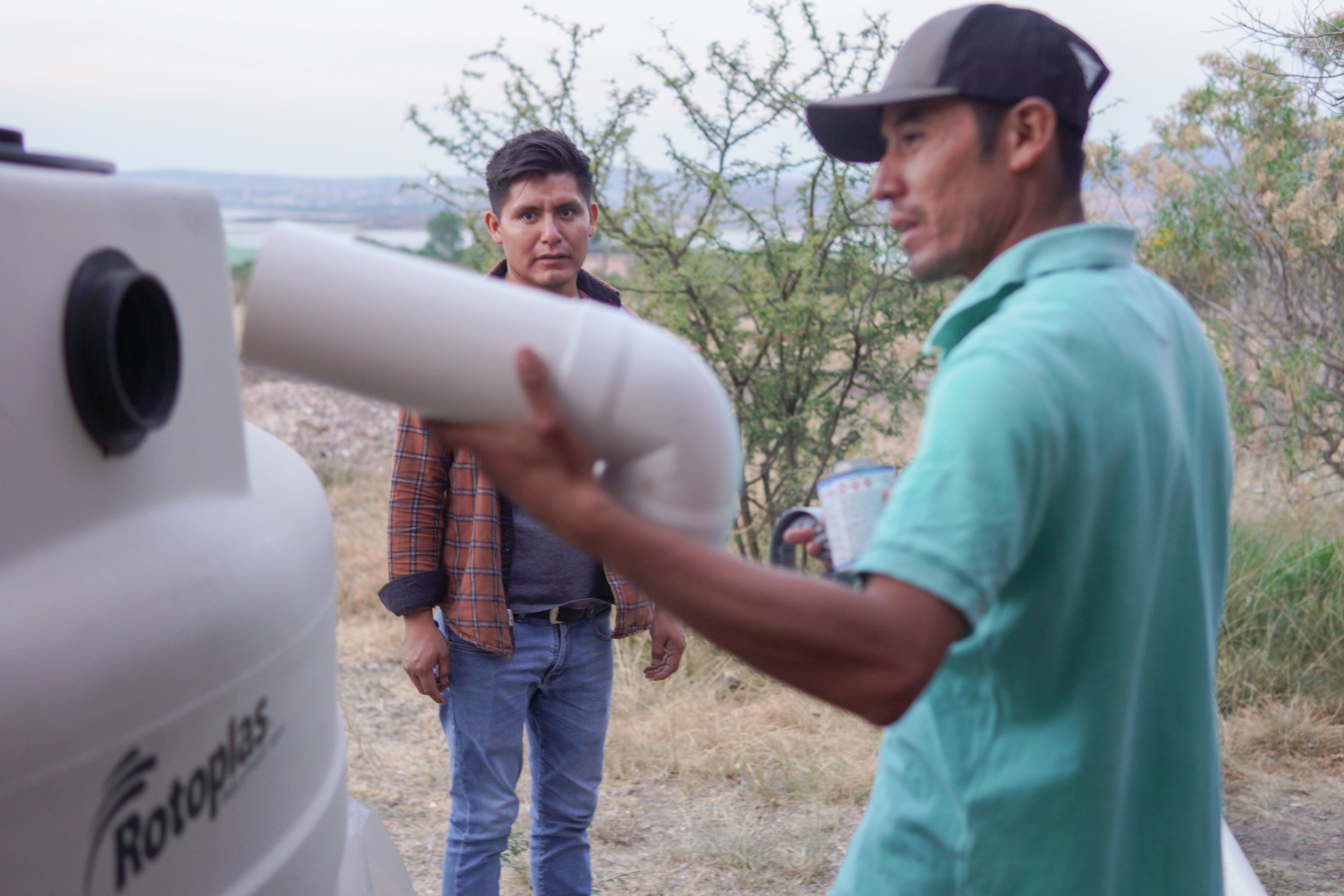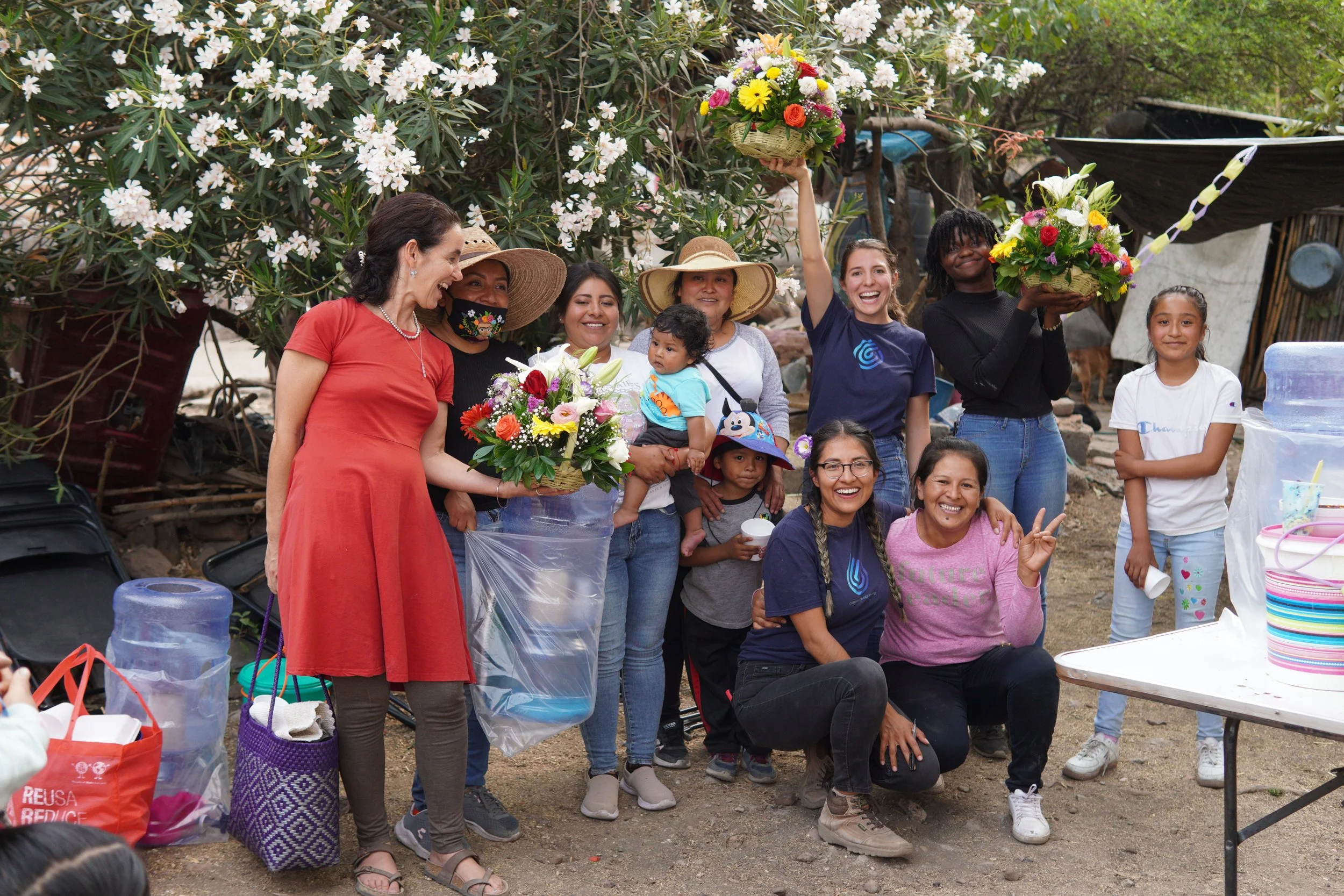Organizing to provide safe drinking water in the community of Salitrillo in San Miguel de Allende
The community of Salitrillo, situated in the municipality of San Miguel de Allende, is located on the banks of the Allende Reservoir ("Presa Allende"). The community is known for its fishing and the production of carrizo (reed) baskets. And, although there is this massive body of water nearby, it is well-known that the water from Presa Allende is not suitable for drinking or domestic activities.
Salitrillo Community in San Miguel de Allende, Gto.
The community has a direct water supply from a well that supplies two nearby communities. The water from this well has contamination problems with fluoride levels that exceed World Health Organization (WHO) regulations. Water shortages have also been a problem, particularly for the higher parts of the community. You can consult arsenic and fluoride levels in our Water Quality Map.
Caminos' approach in the community of Salitrillo began thanks to Bill Wilkinson, a US citizen who, for years, has had a keen interest in the community and its well being. Bill, concerned primarily about the children, requested a water quality analysis from the community's well with Caminos de Agua. The elementary school in Salitrillo has a kitchen run by the local NGO, Feed the Hungry, and Bill did not want to imagine that the children were being fed with meals that were cooked with contaminated water. The test results did indeed show high levels of fluoride. So, we began working together on a project, initially funded by Bill and his team, that consisted of a rainwater harvesting system for the elementary school that included two large tanks of 10,000 liters each. Caminos de Agua also facilitated seven educational workshops. If you want to learn more about the project click on the following link.
Student moms at Caminos de Agua workshop
20,000 L Rainwater Harvesting System (RWH) in Salitrillo Elementary School.
Just after the project was completed, the pandemic hit and the elementary school had to close its doors. Some time later, Caminos de Agua visited the school - still closed - to provide the principal with our requested educational materials, and it was then that we realized that the Rainwater Harvesting (RWH) System was damaged. A meeting was called between the mothers of the community and Caminos de Agua to solve the issue. During the meeting, the community also became increasingly interested about the possibility of having rainwater harvesting systems at the domestic level, to be able to provide clean drinking water in their own homes.
Caminos de Agua's work implementing technologies in local communities is done in partnership with the community members themselves, who provide their time, skills, and labor for the construction and installation of RWH systems, as well as facilitating workshops to new families and helping to multiply the information and impact. ,Community members, as the true experts of their local environment and territory, are the ones who make the decisions regarding the key processes of every project.. After understanding all that is required to take on the implementation of a RWH project, including the time required by each person to participate in workshops and ultimately build and install the systems, as well as the cost to each family (Caminos de Agua provides much of the financial support, but participating families are also required to participate financially), the 37 women participating decided to move forward. Three of the participating mothers from the community volunteered to form the Coordinating Committee: MaryChuy, Rosa and Caritina.
Salitrillo’s coordinating committee facilitating workshops
In 2019, Caminos de Agua began developing an important project in collaboration with more than 10 community and organizational partners that ultimately turned into the "Agua y Salud" (Water and Health) Initiative, largely funded by the Gonzalo Río Arronte Foundation. At that time, in San Miguel de Allende, the change of municipal government was approaching. Caminos de Agua had a collaboration agreement signed with the Department of Ecology to contribute one million pesos in materials for the construction of RWH systems in 3 communities of San Miguel as part of the Agua y Salud Initiative. The coordinating committee in Salitrillo, along with Caminos de Agua staff, responded to all the requests made by the Department of Ecology without, unfortunately, being able to successfully liberate the promised funds prior to the change in government. The process was left "pending" within the prior administration. Caminos de Agua assumed its commitment to the community and began to look for other means of financing the project, and, at the same time, accompanied the coordinating committee to replicate the educational workshops. The necessary funds were ultimately obtained from Planet BuyBack, an international crowd-funding institutional partner, and the first stage of the project, which consisted of 15 RWH systems, each with a 5,000-liter capacity (enough for a family of 5 people to have safe water for drinking and cooking all year long), was completed. Caminos de Agua provided technical training on the installation of a model system so that the community could develop the skills to replicate the installation and complete the other RWH systems largely on their own, but with on-going supervision and guidance provided by Caminos' staff.
Now that 15 of the 37 systems agreed upon are in place, the search for more financing began. The administration of Caminos reached out to partners at the Gonzalo Río Arronte Foundation to help facilitate a new, important, relationship with Rotoplas – a large Mexican corporation synonymous with water storage in Mexico and greater Latin America. Through this new partnership, Rotoplas made a massive material donation, worth upwards of USD $120,000, to Caminos' projects by the beginning of 2022. With these materials, Caminos would be able to build 75 new rainwater harvesting systems in communities throughout the watershed. The first materials for 22 of the donated systems were utilized to secure the needs of the participating families in the Salitrillo project, ultimately providing safe drinking water to all 37 families.
At the end of the project, members of the community prepared a very special inaugural celebration in which Caminos facilitated a workshop on the use and maintenance of the last element of the RWH system: the ceramic water filter, which eliminates biological pathogens turning the rainwater into water fit for human consumption. At the event, everyone enjoyed a great feast, words of gratitude and celebration were exchanged, and voices filled the air our hearts with hope.
“There are many things that move us; life, water, knowledge, continuing to learn, families, the future. This started with an idea, to learn to be a team, to take care of the most important thing, which is life.”
”The cause was to detect that there is a problem and the dream is for the children to have clean water, to train the mothers, to make them see that it is possible in the homes.
”
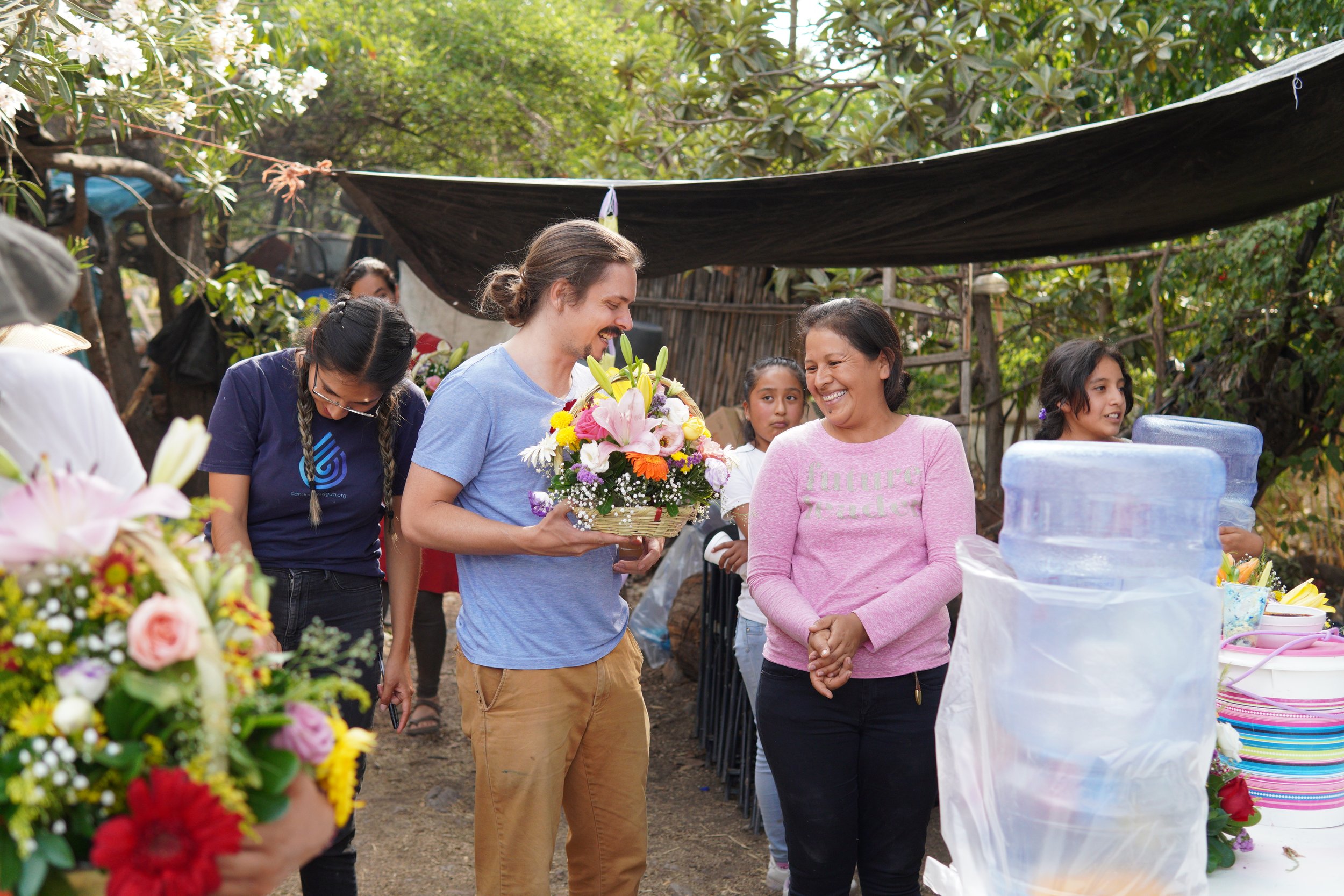
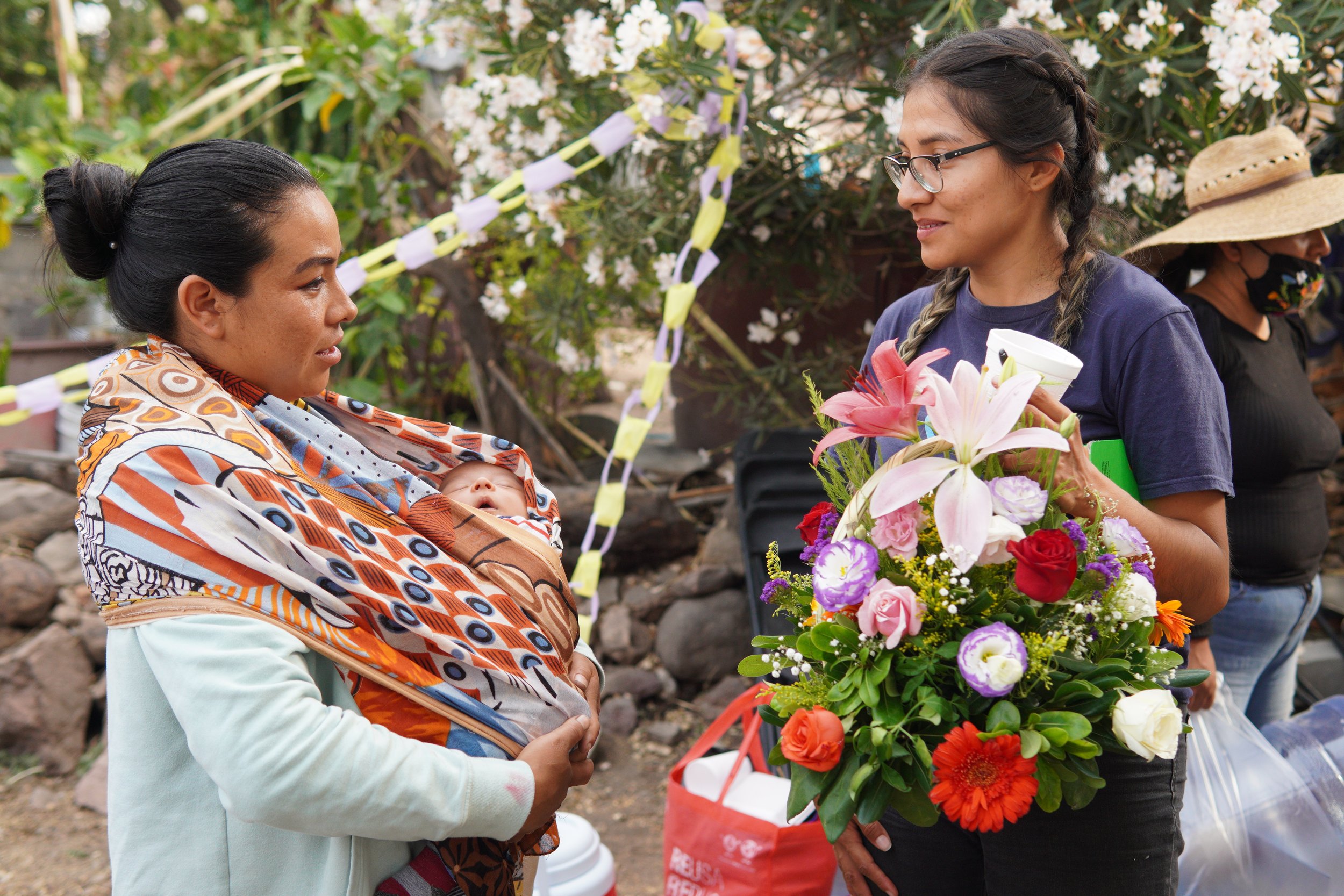
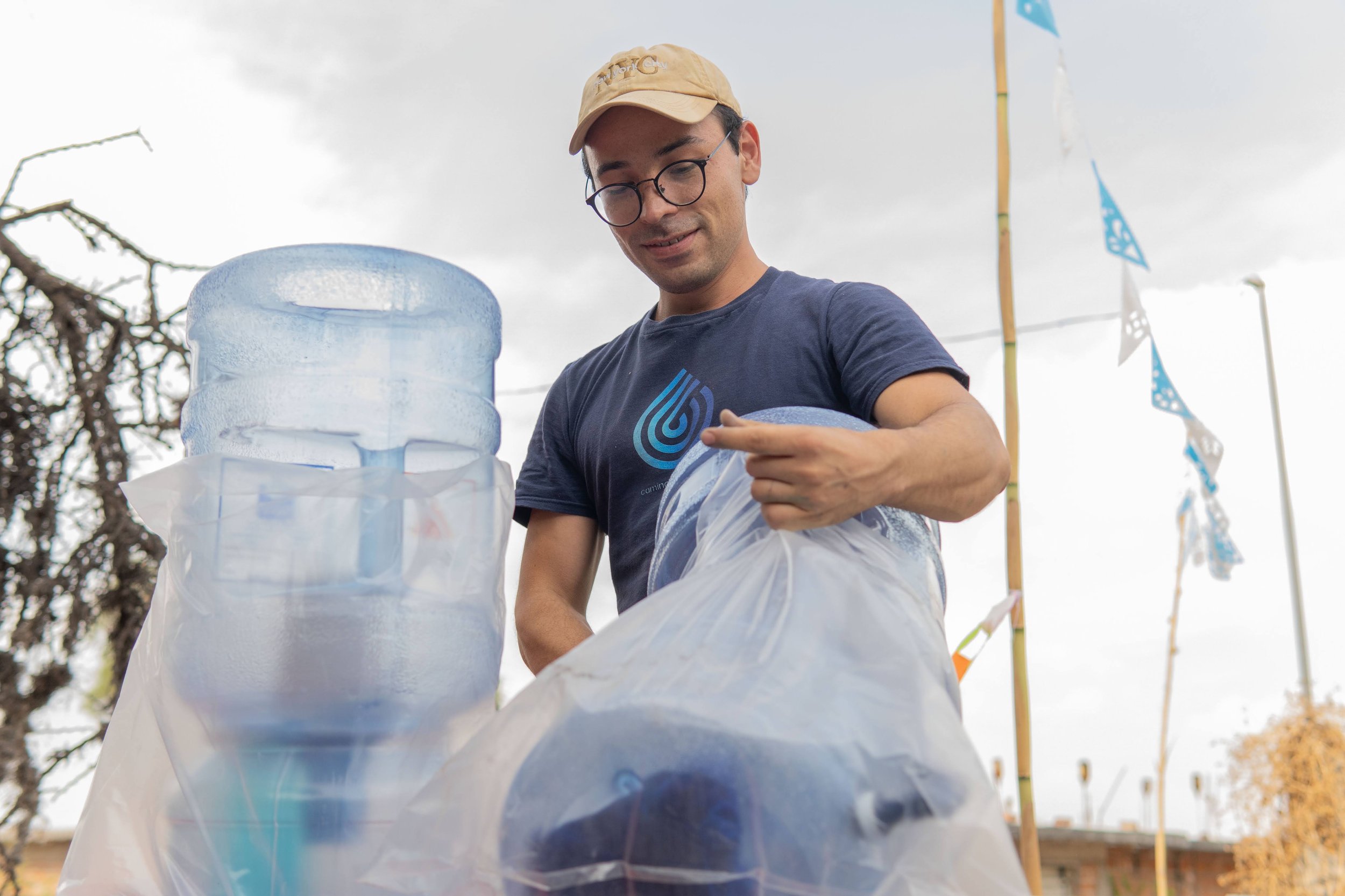
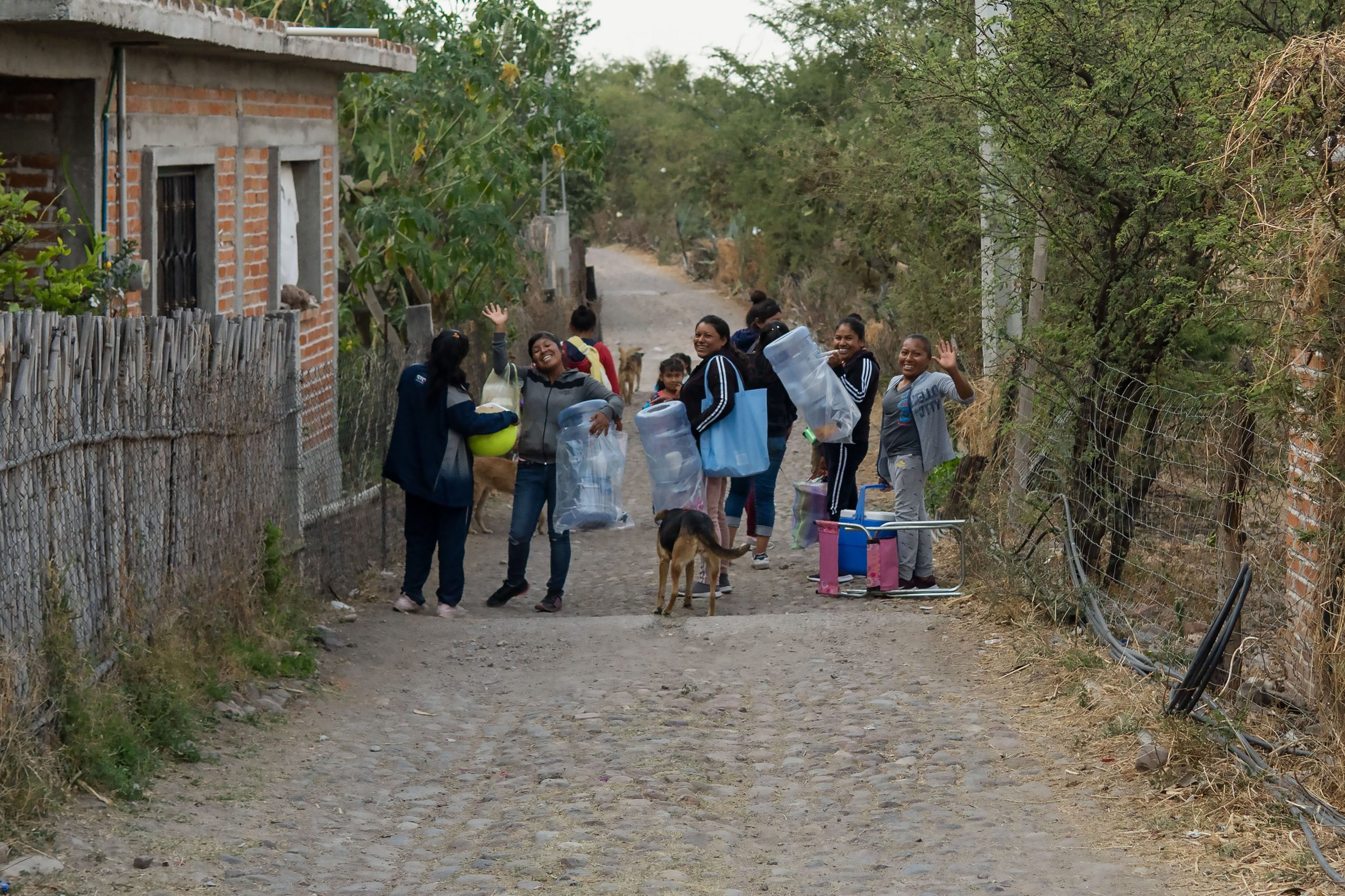
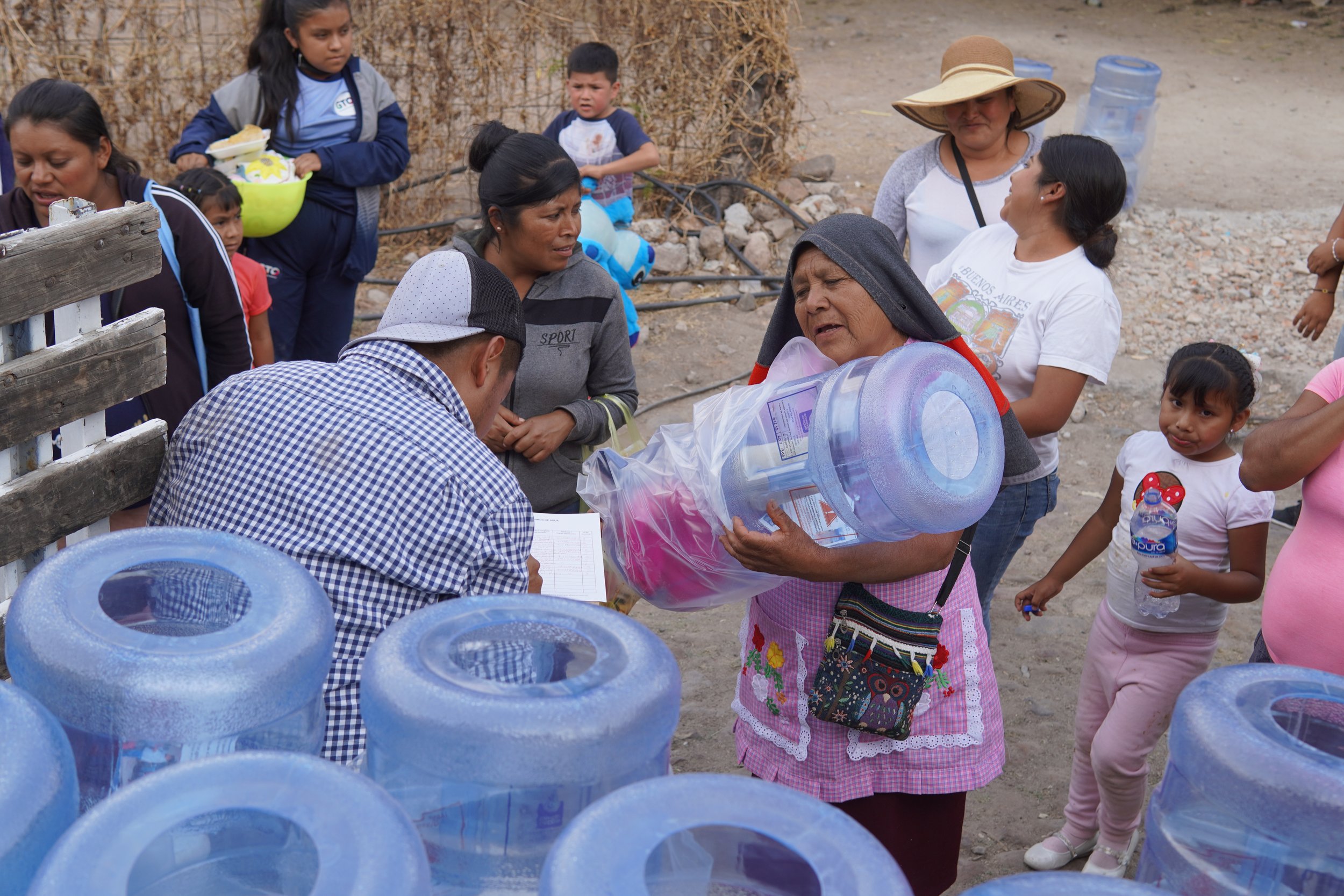
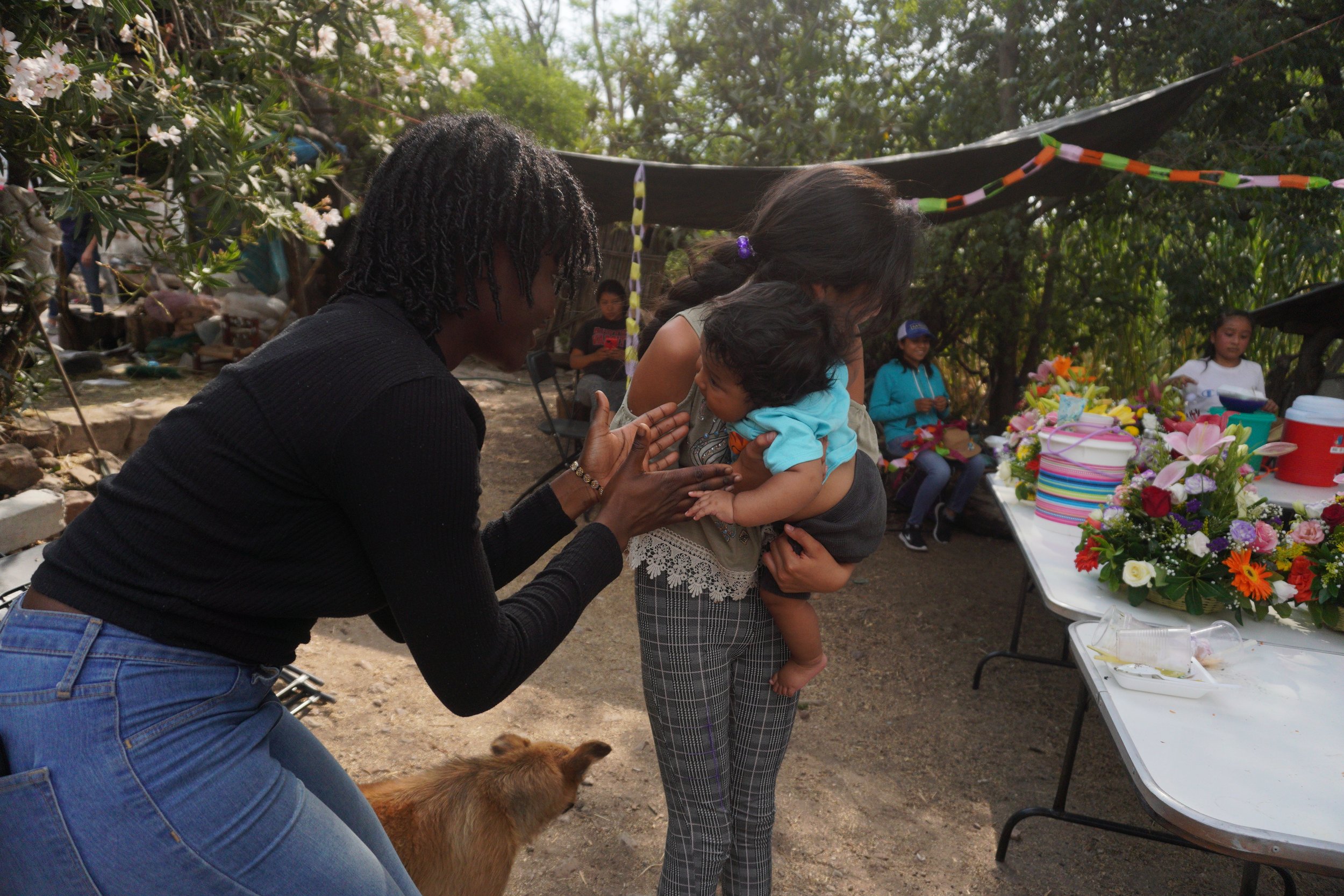
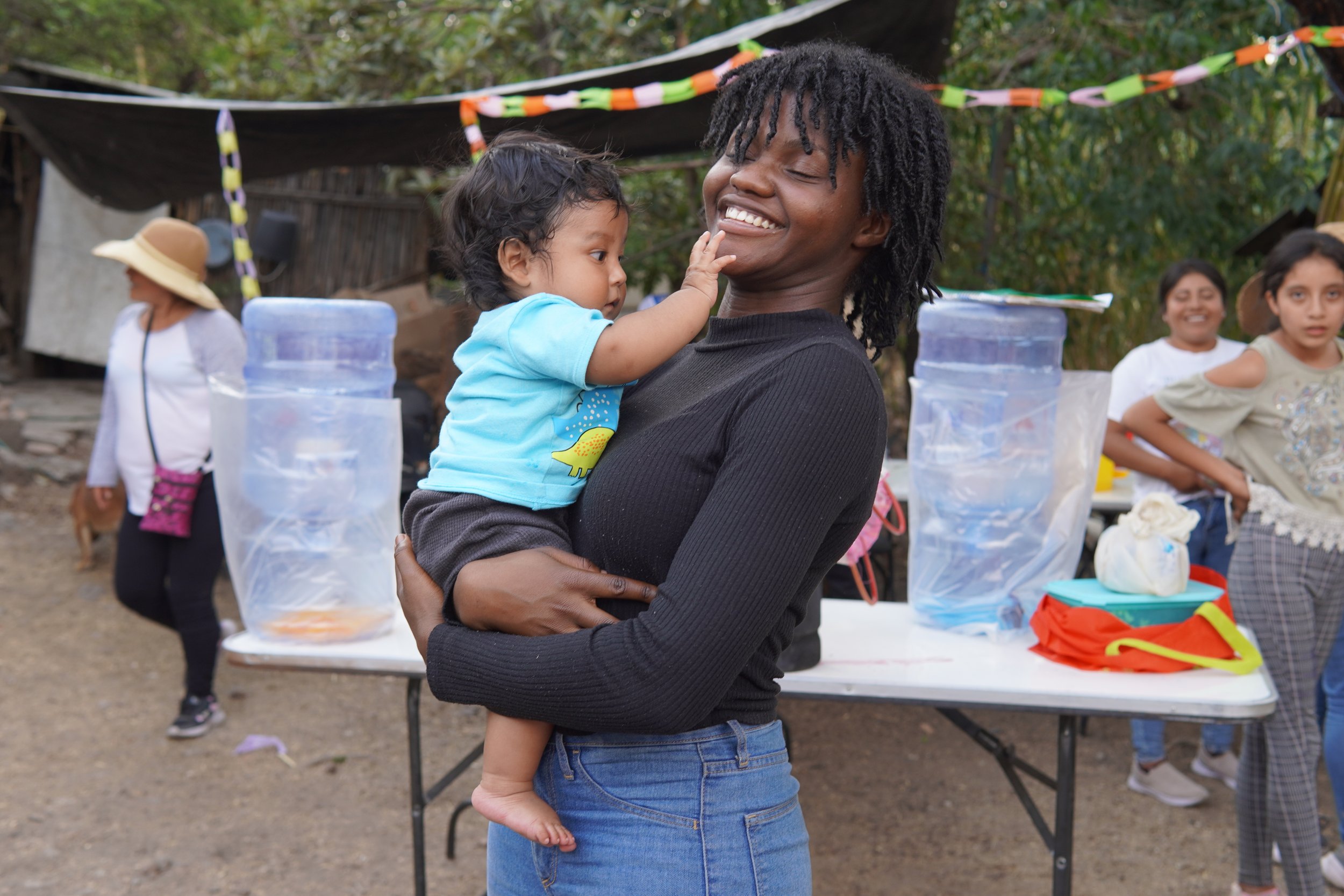
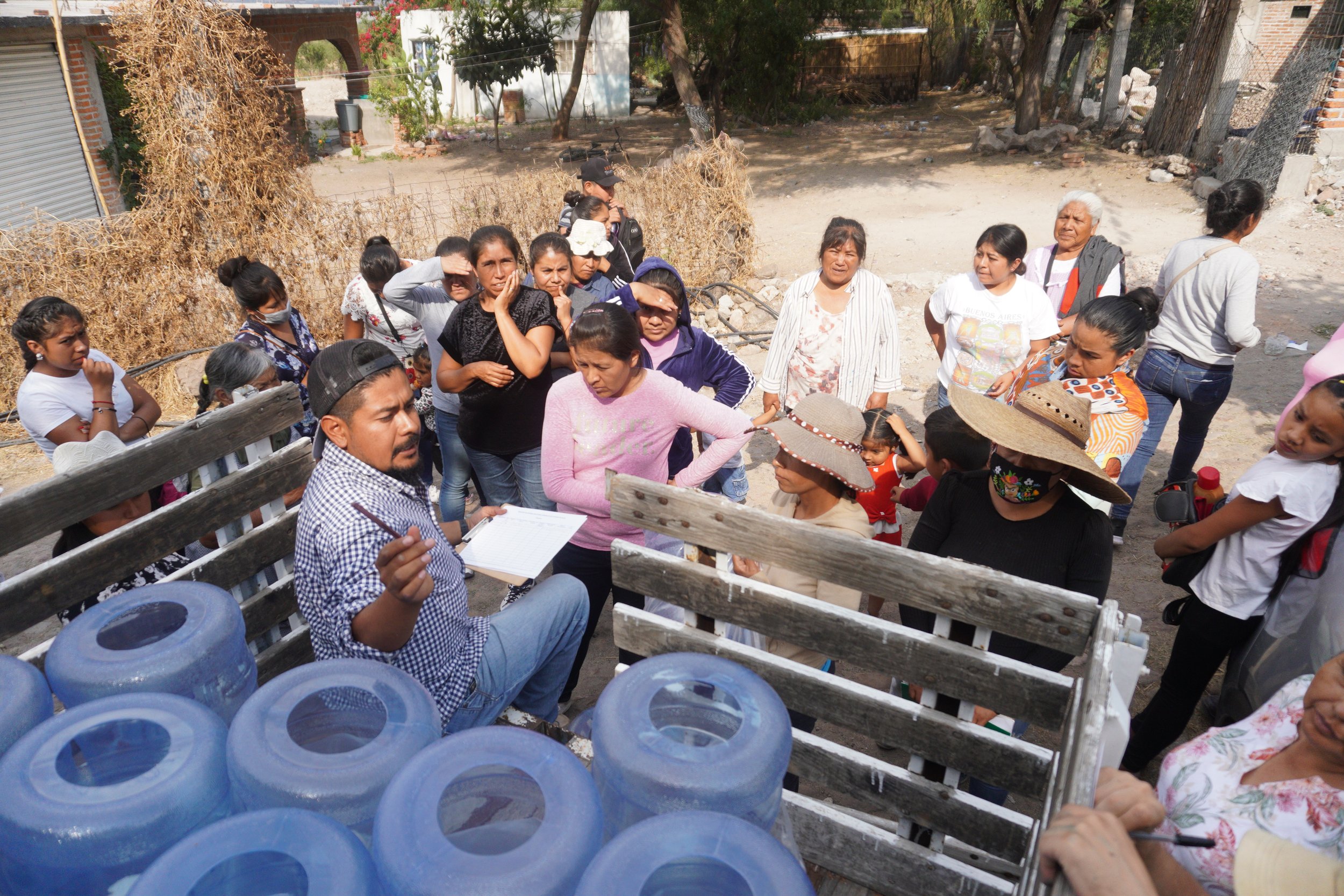
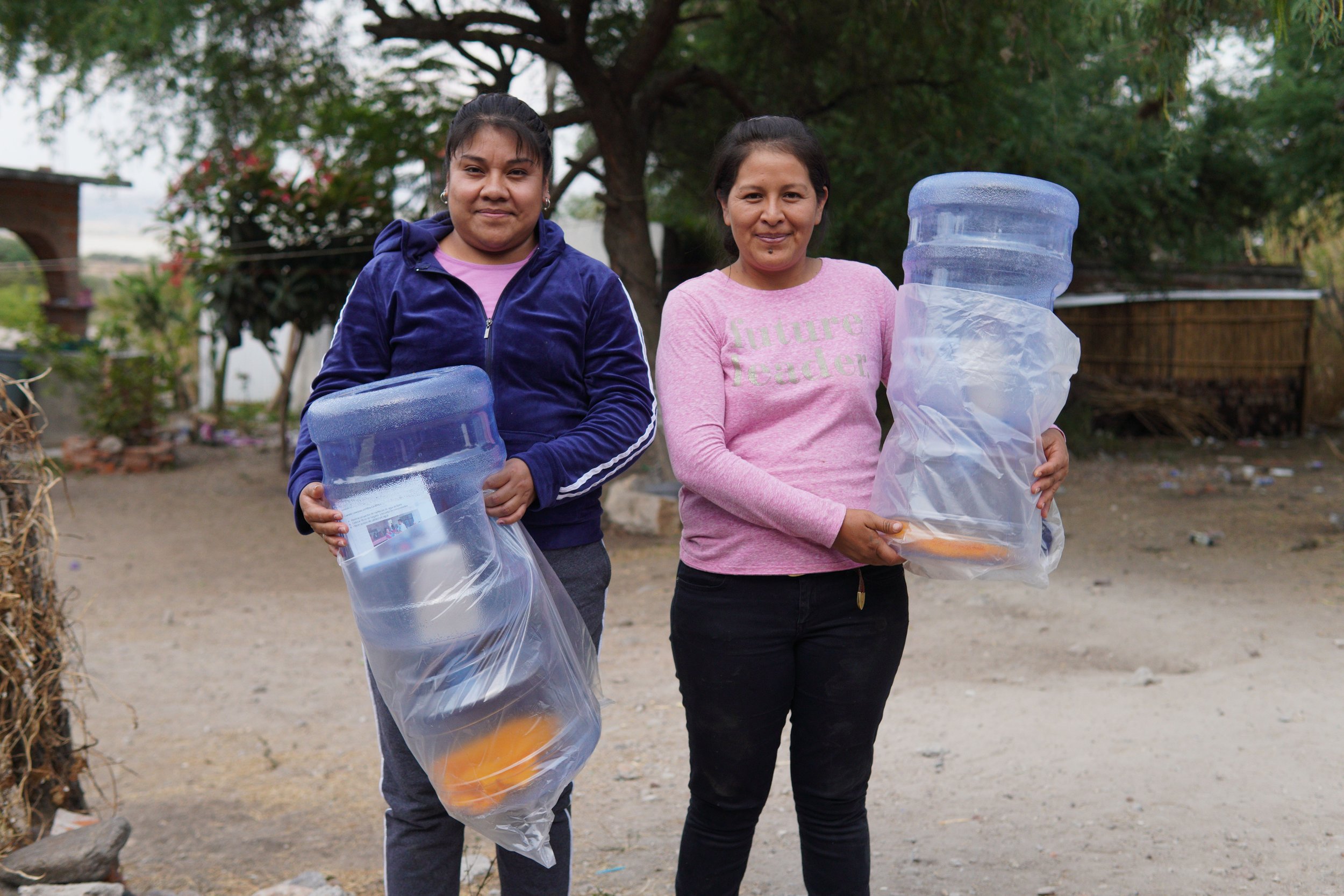
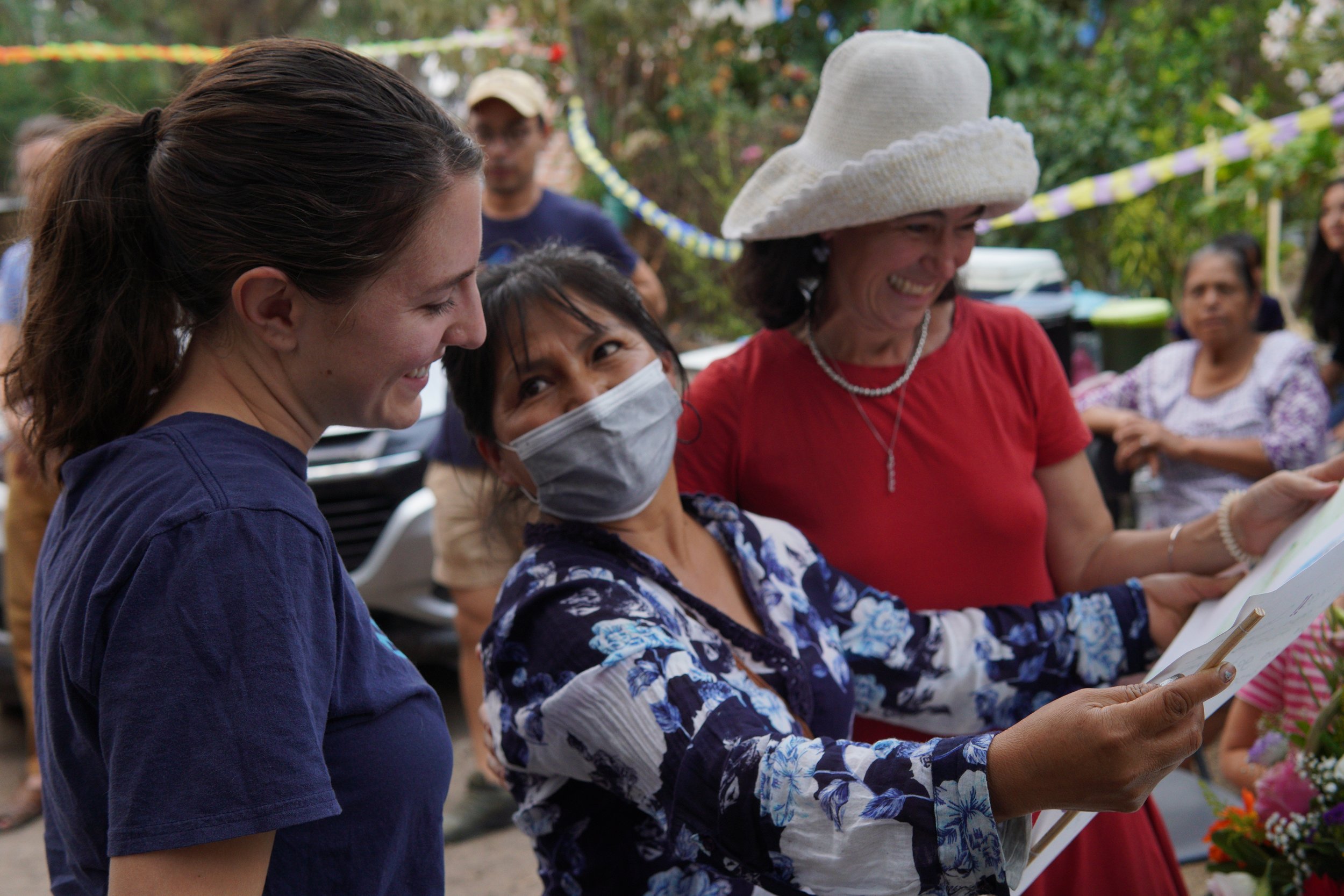
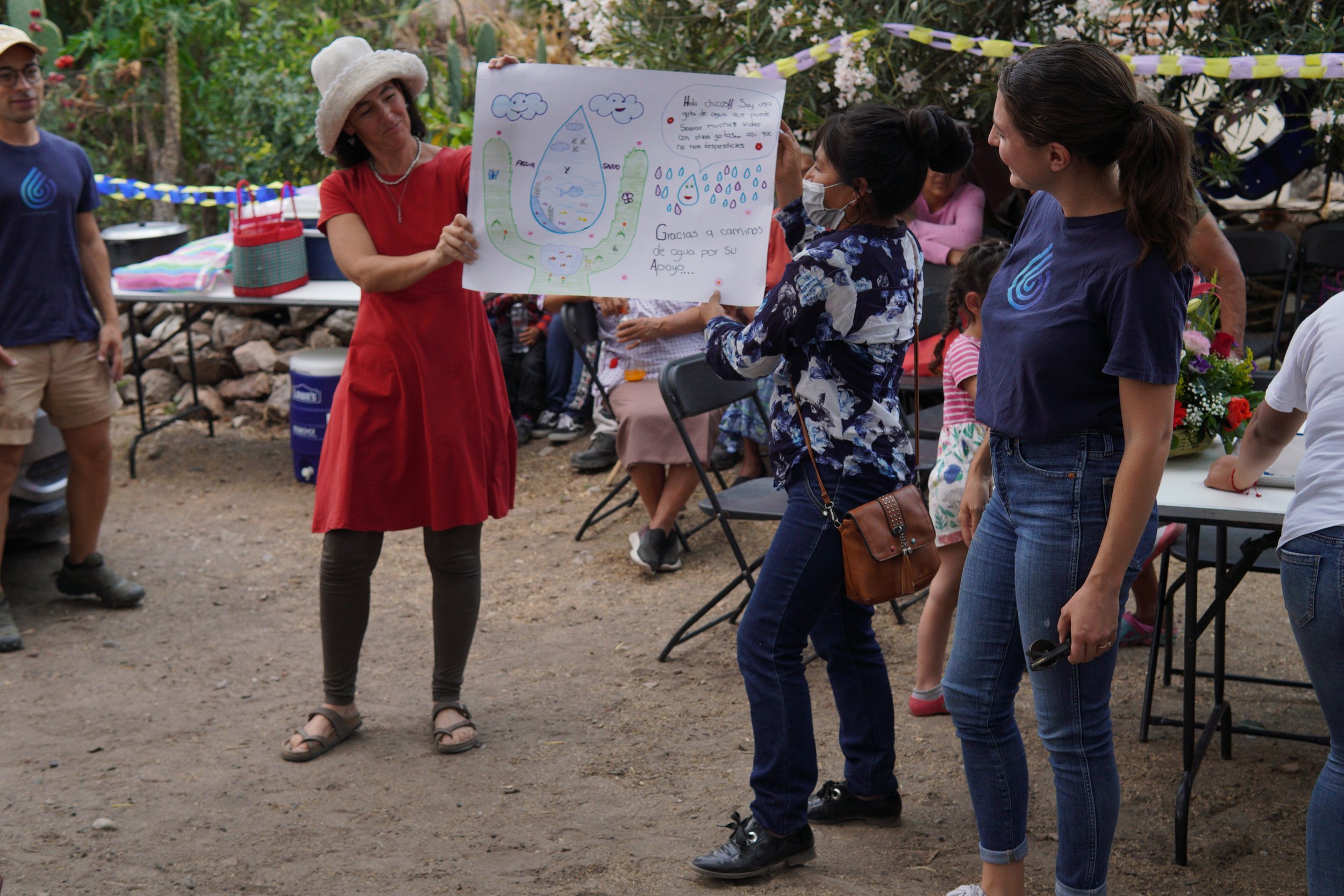
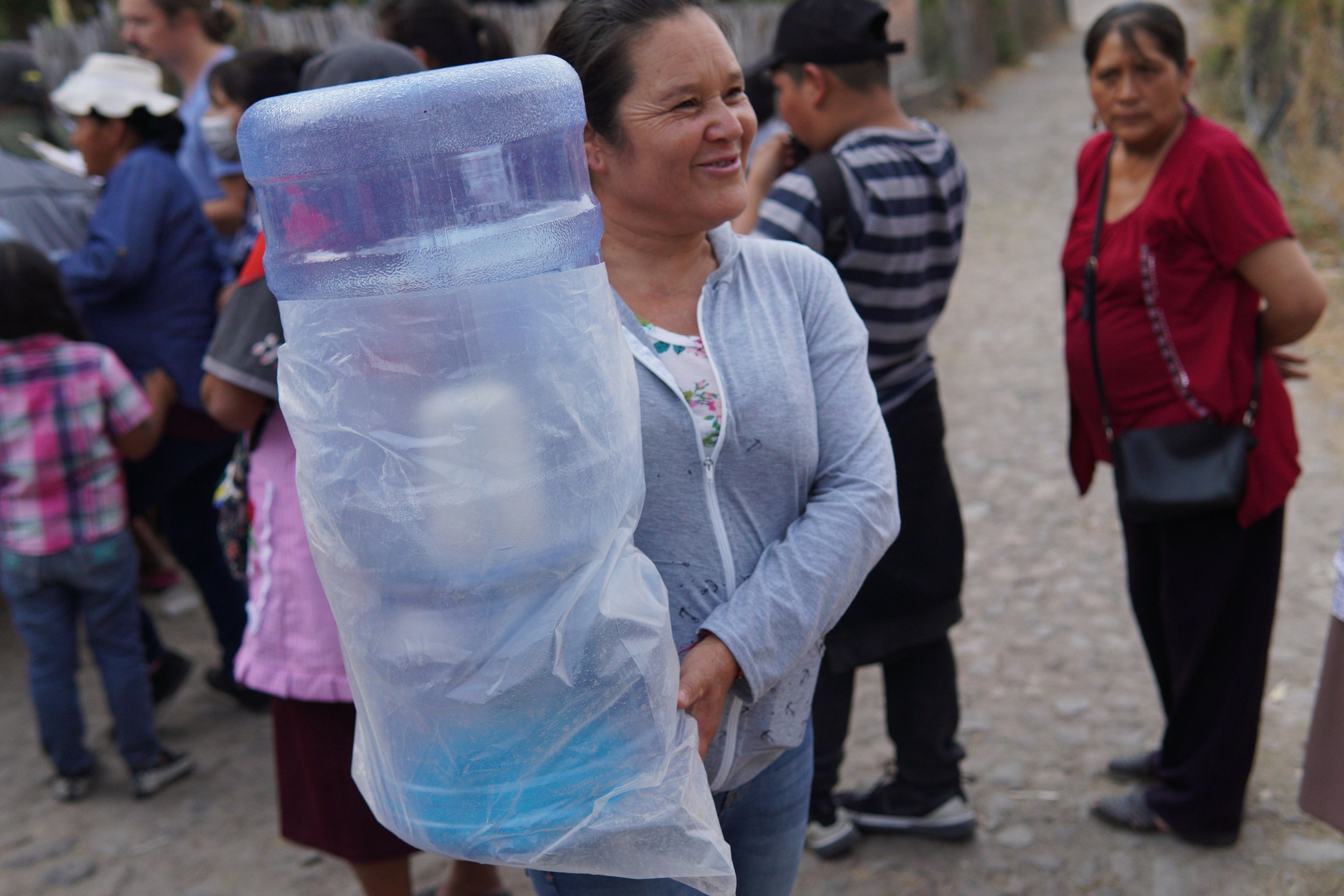
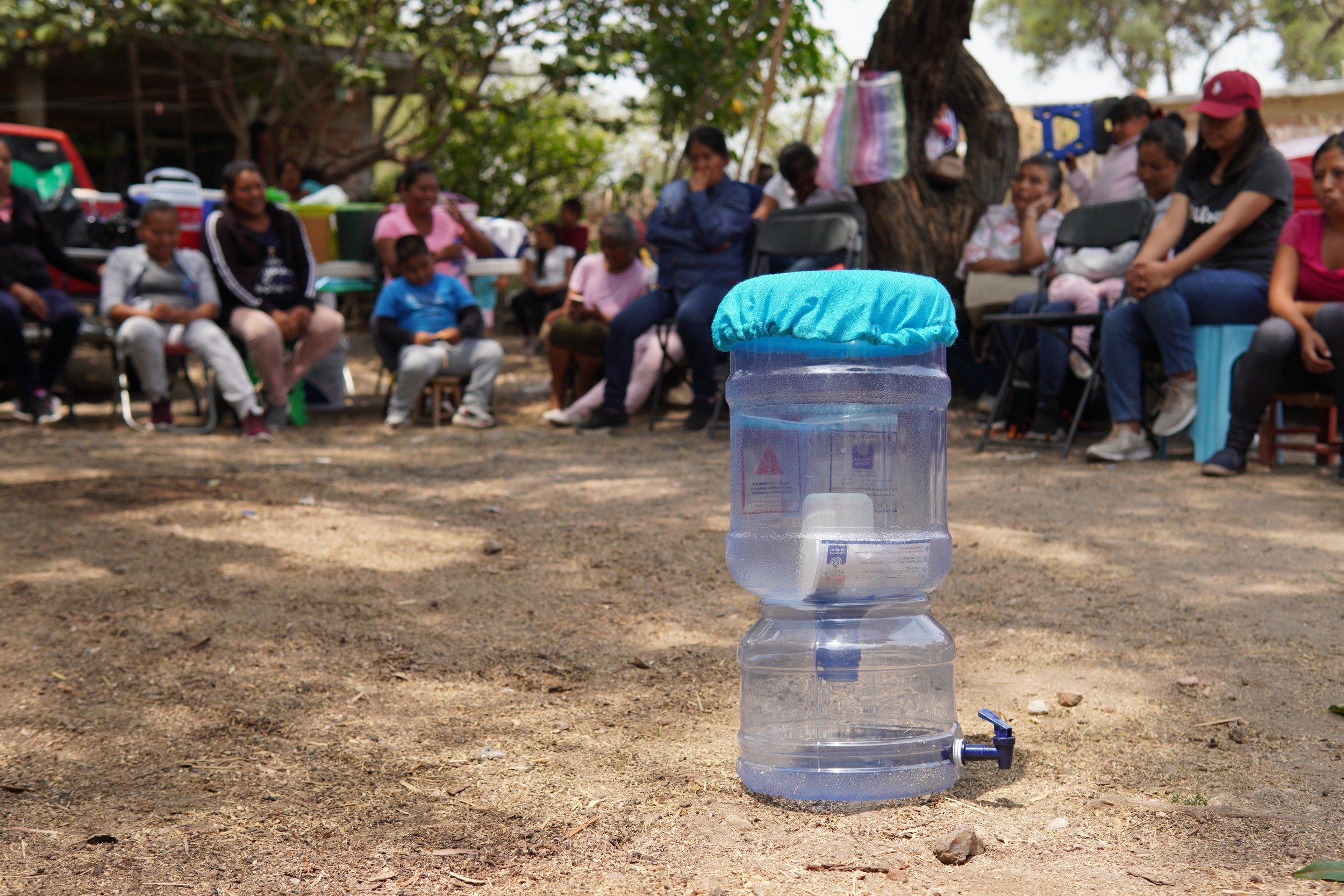
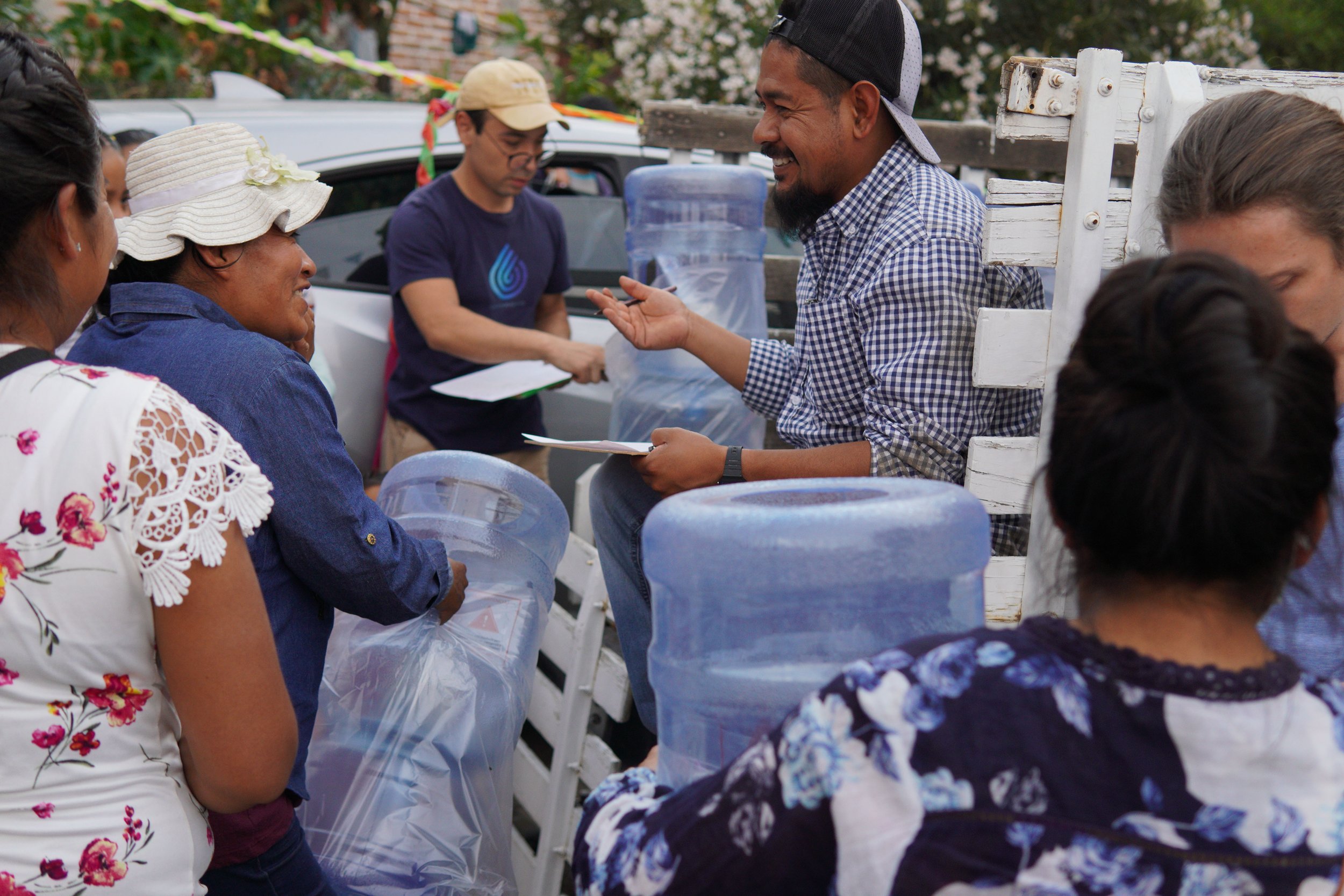
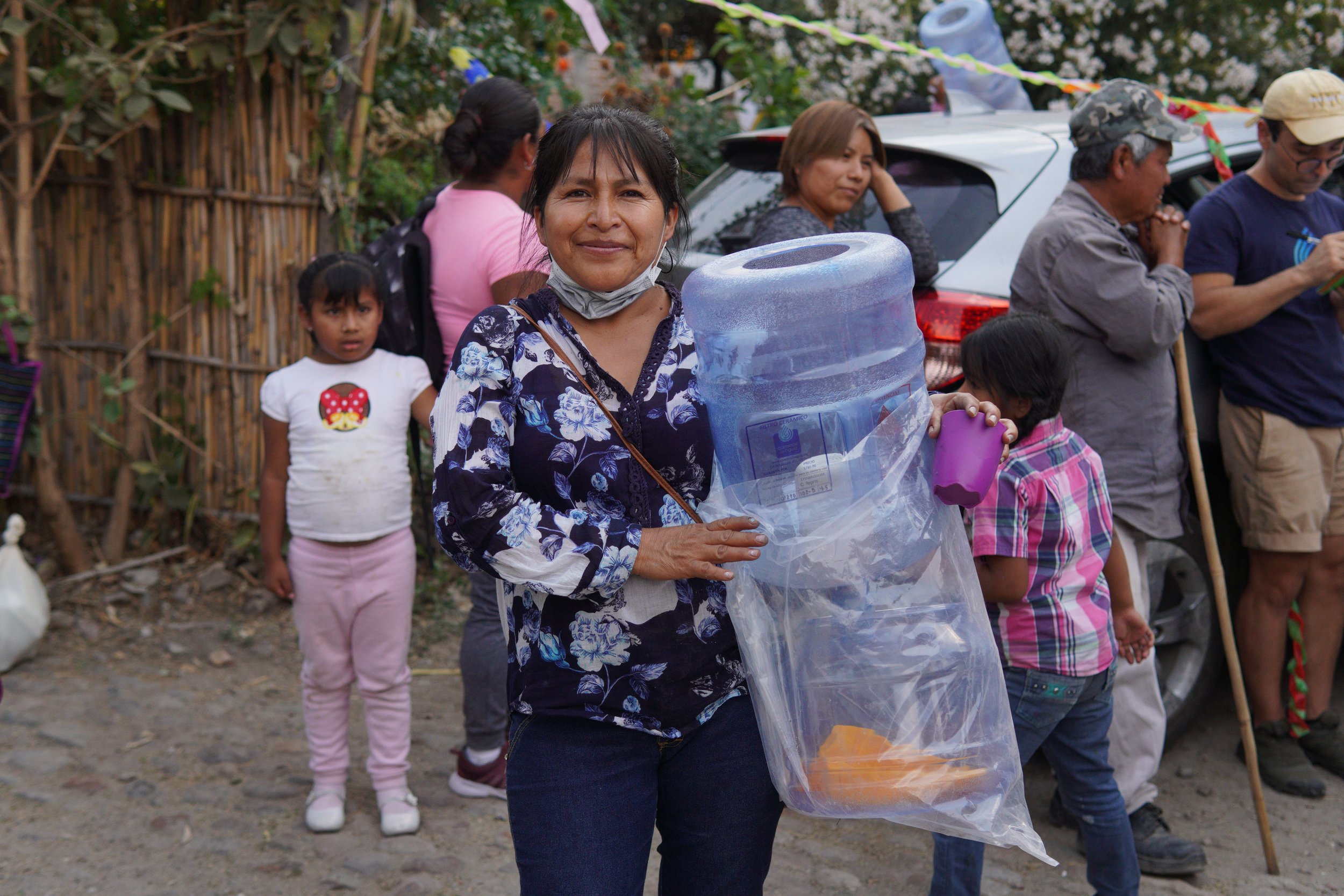
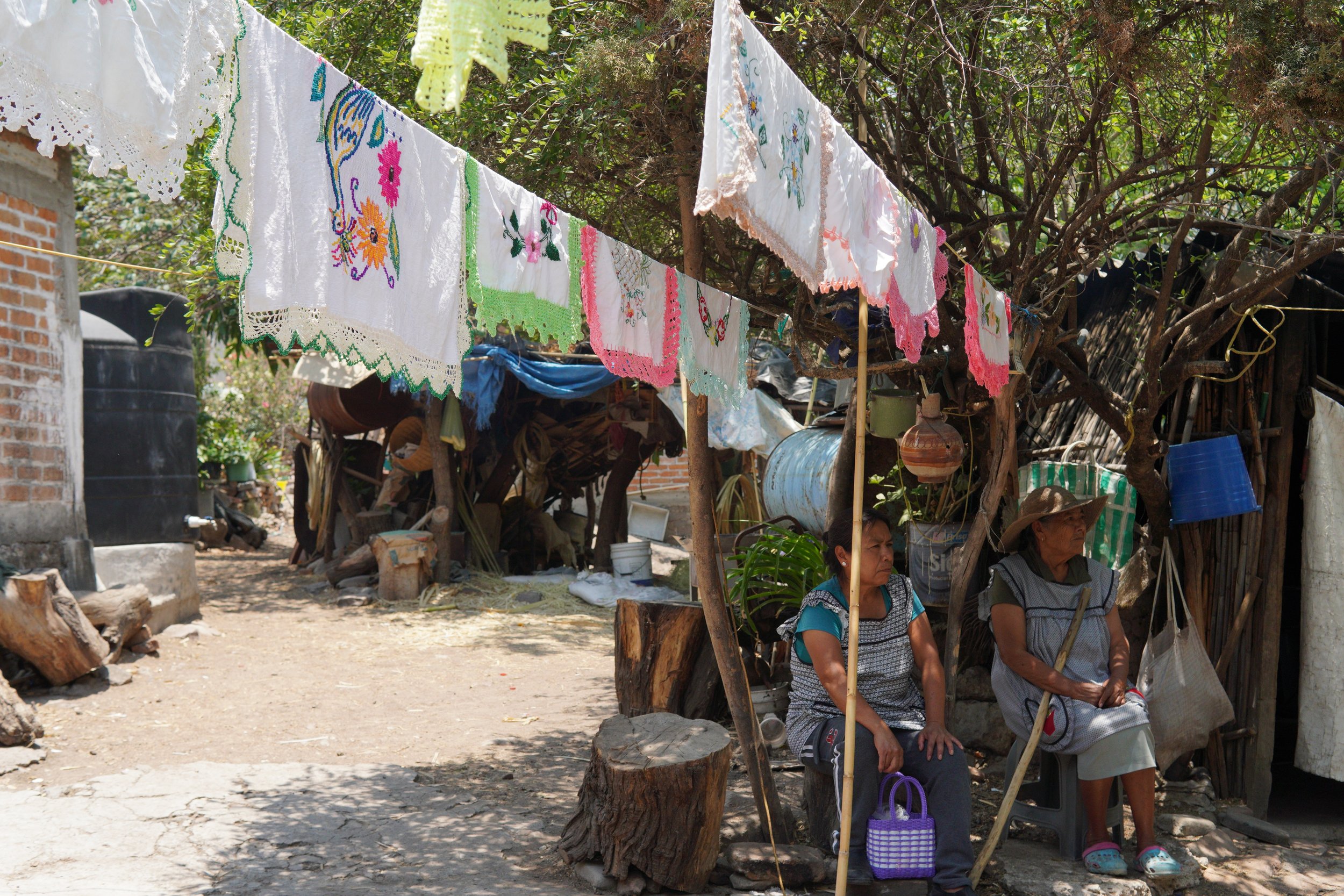
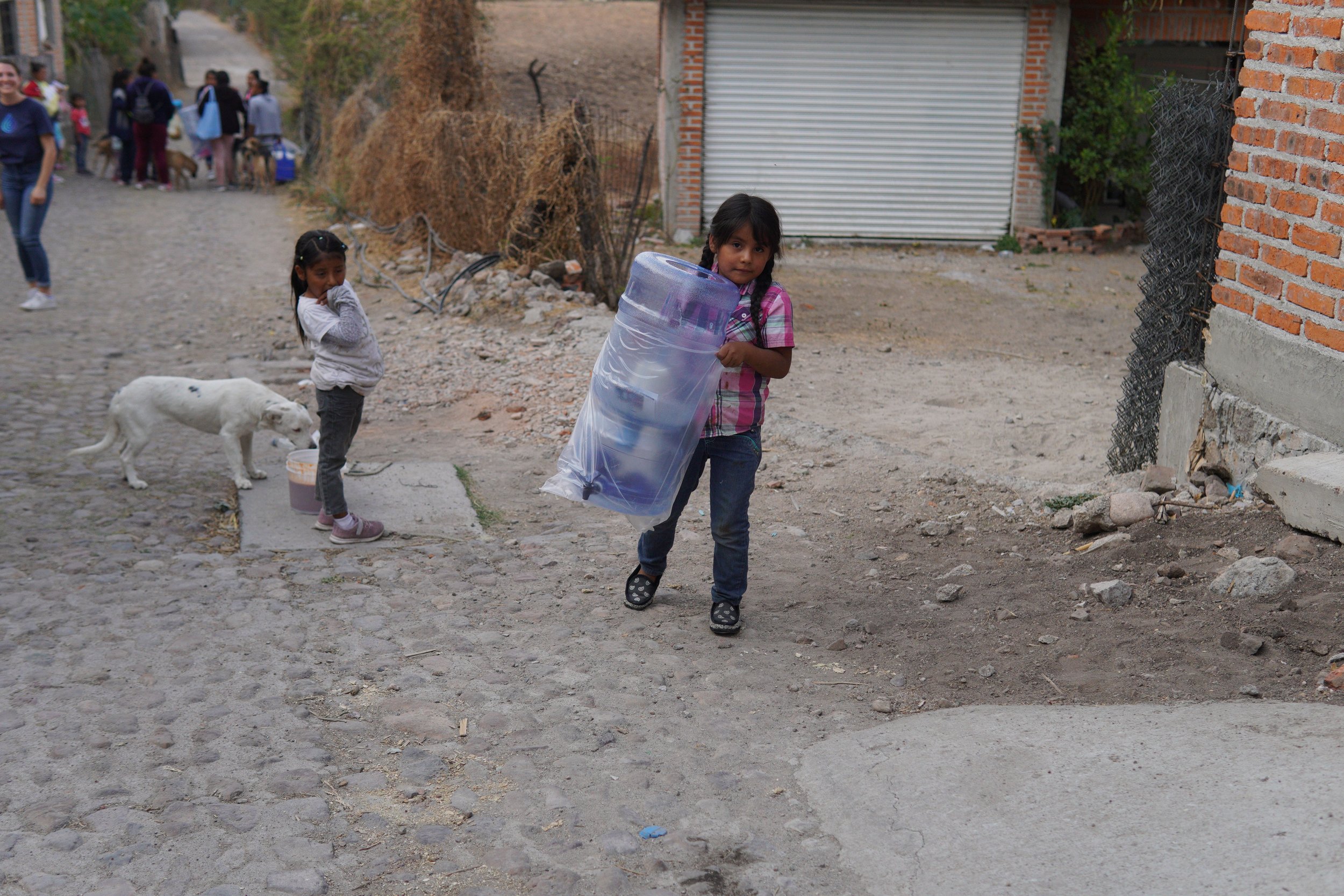
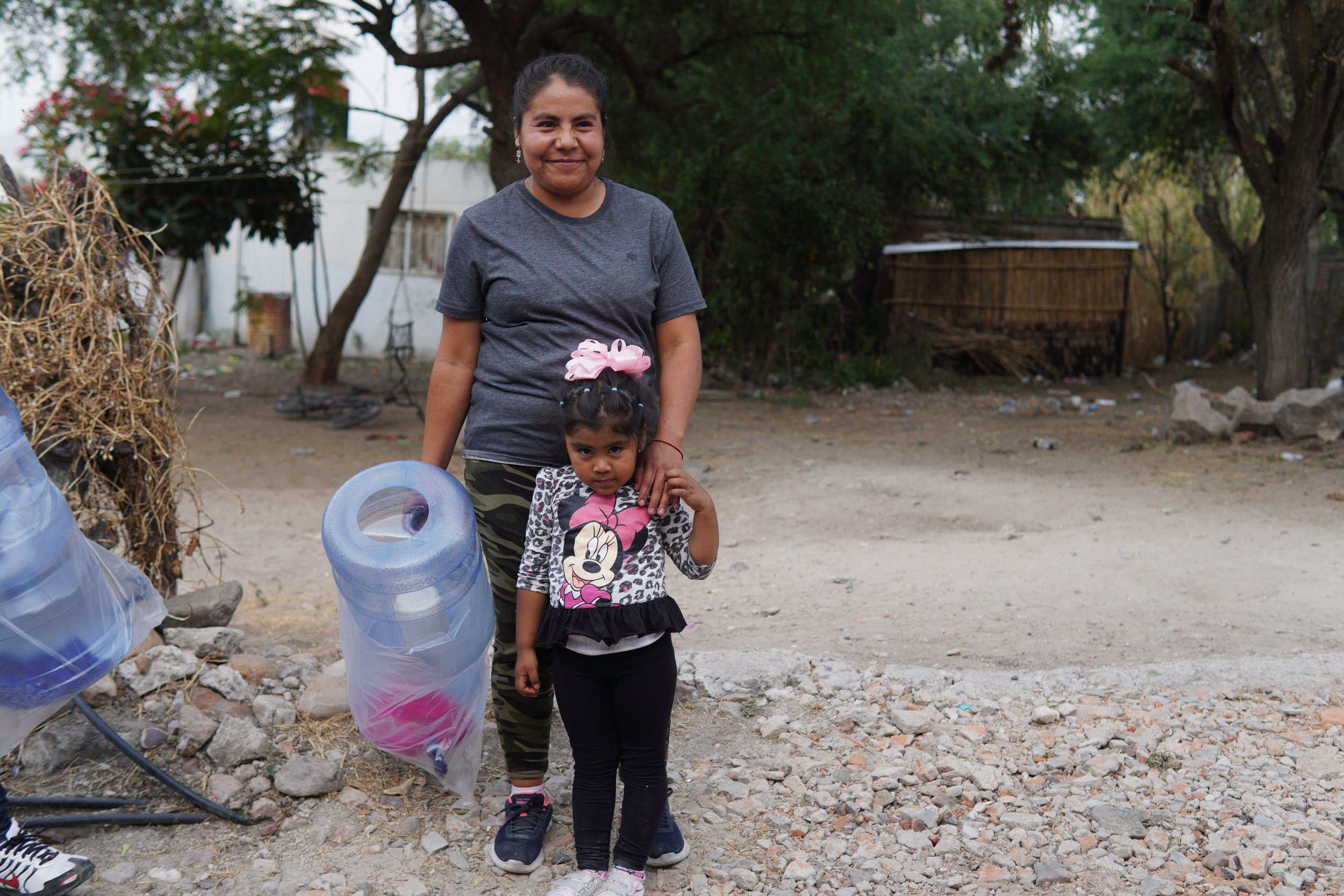
It is important to emphasize that it is almost exclusively women who sustain these processes. With this multiplication of efforts, the community of Salitrillo continues forward with enthusiasm to impact more families, and Caminos de Agua remains committed to accompanying the residents of Salitrillo in this process. This is definitely not the end.
There are about 215 families living in the community, many of them aware of the water situation and many with the interest and curiosity to learn more and get to work. We are very excited, together with our collaborators, to know that 185 people (37 families) now have safe water for drinking and cooking. Let's continue to multiply access to safe water, a human right for everyone.
